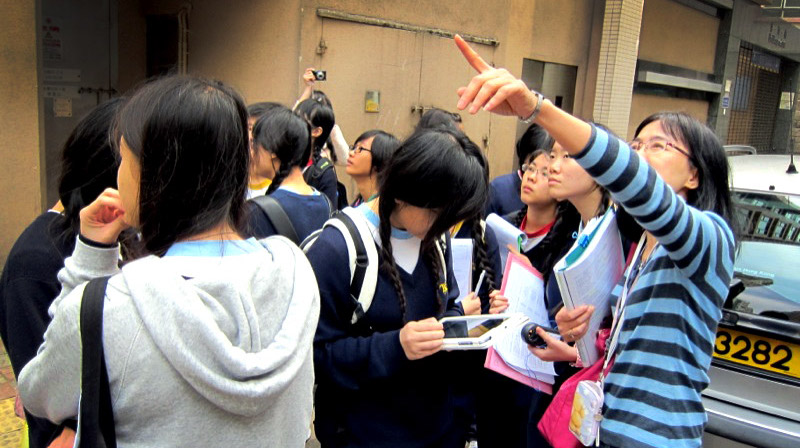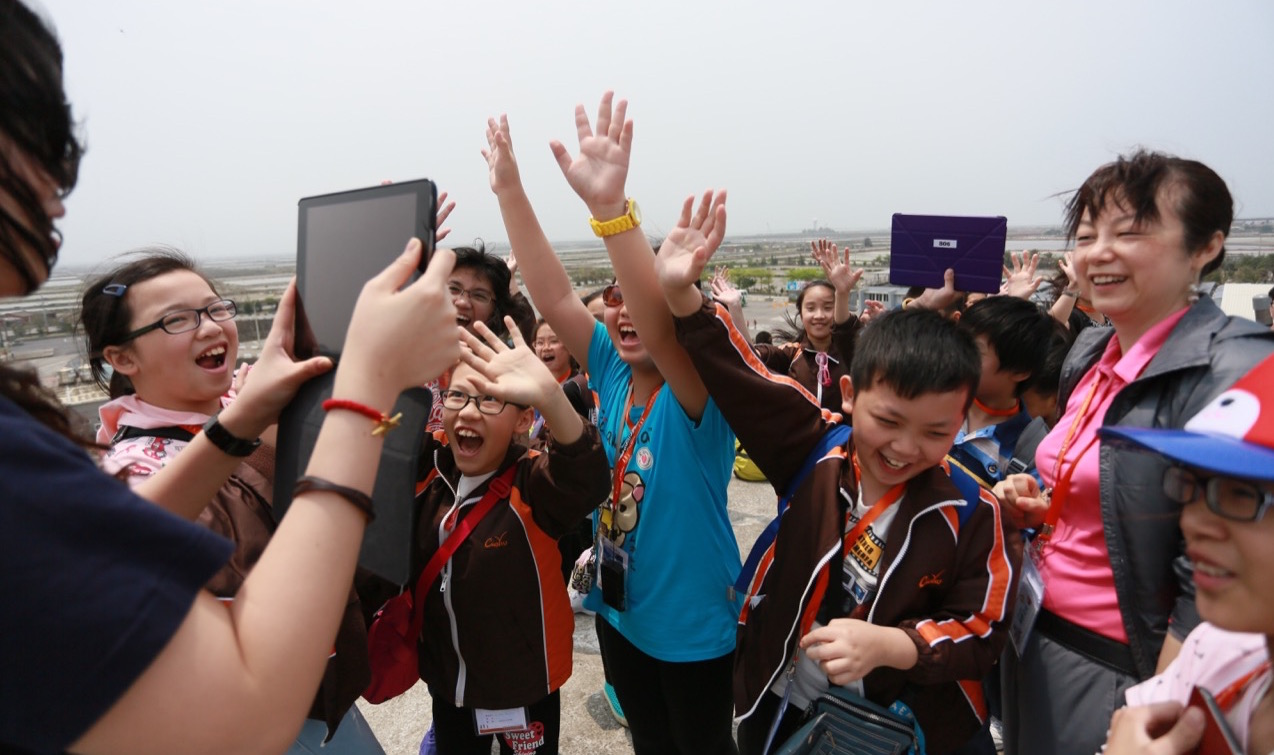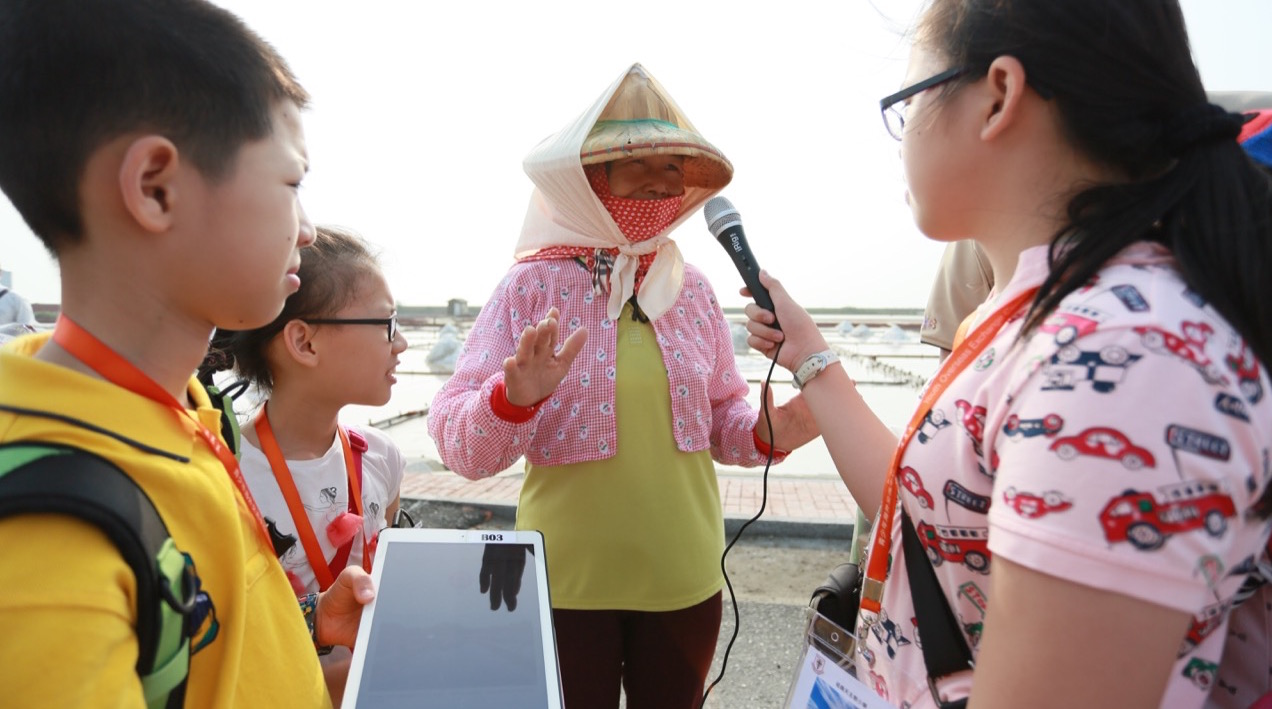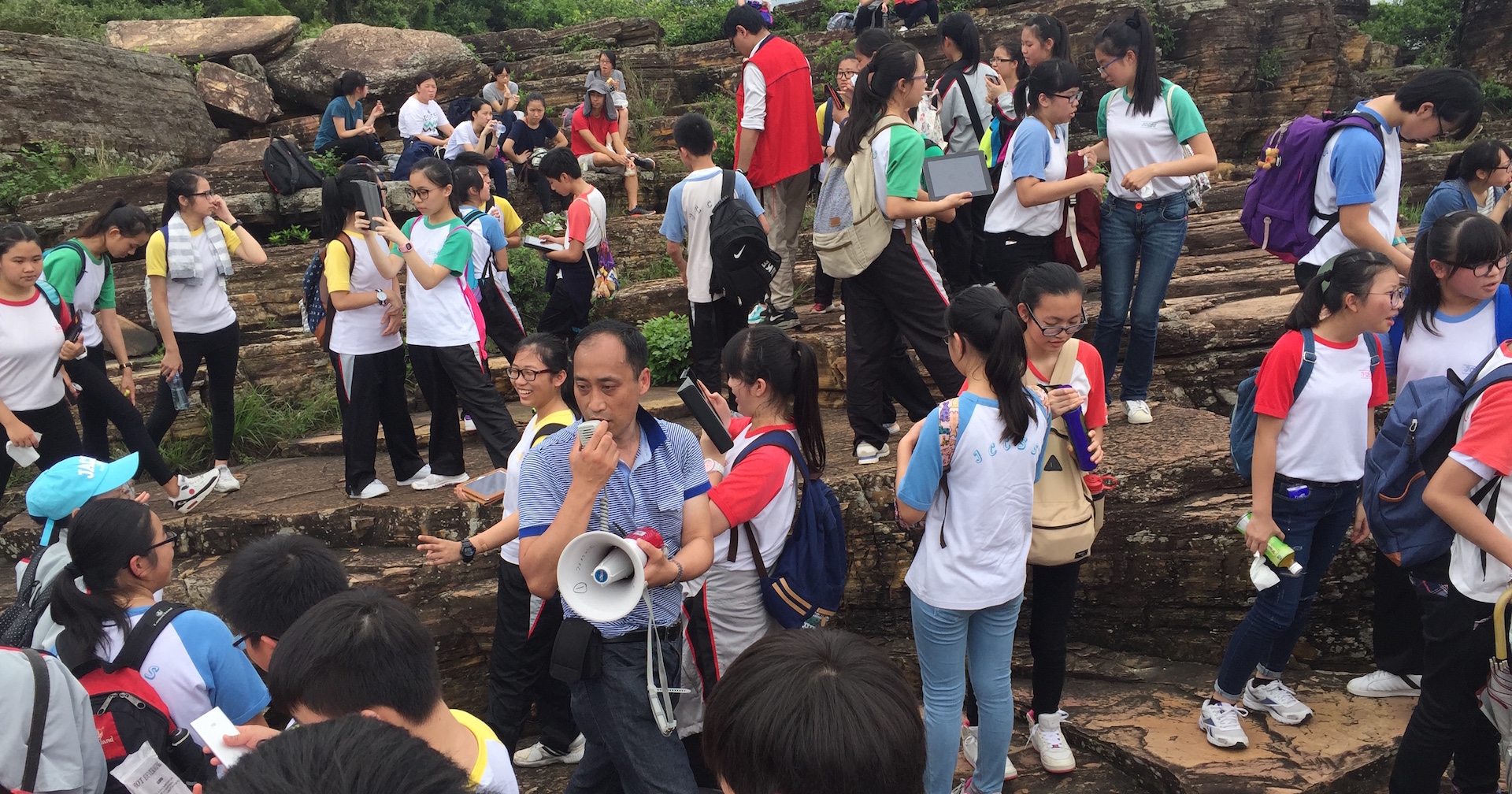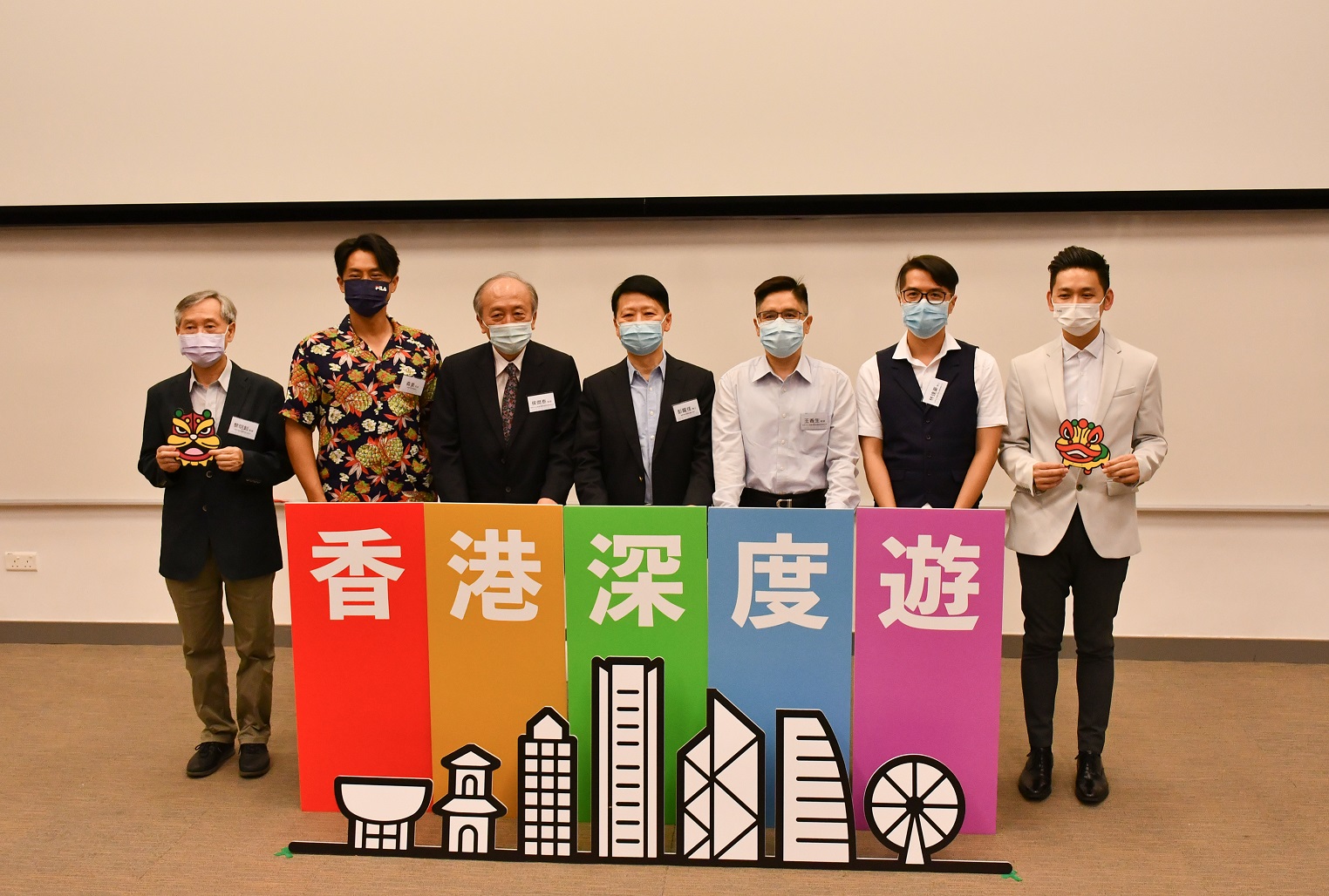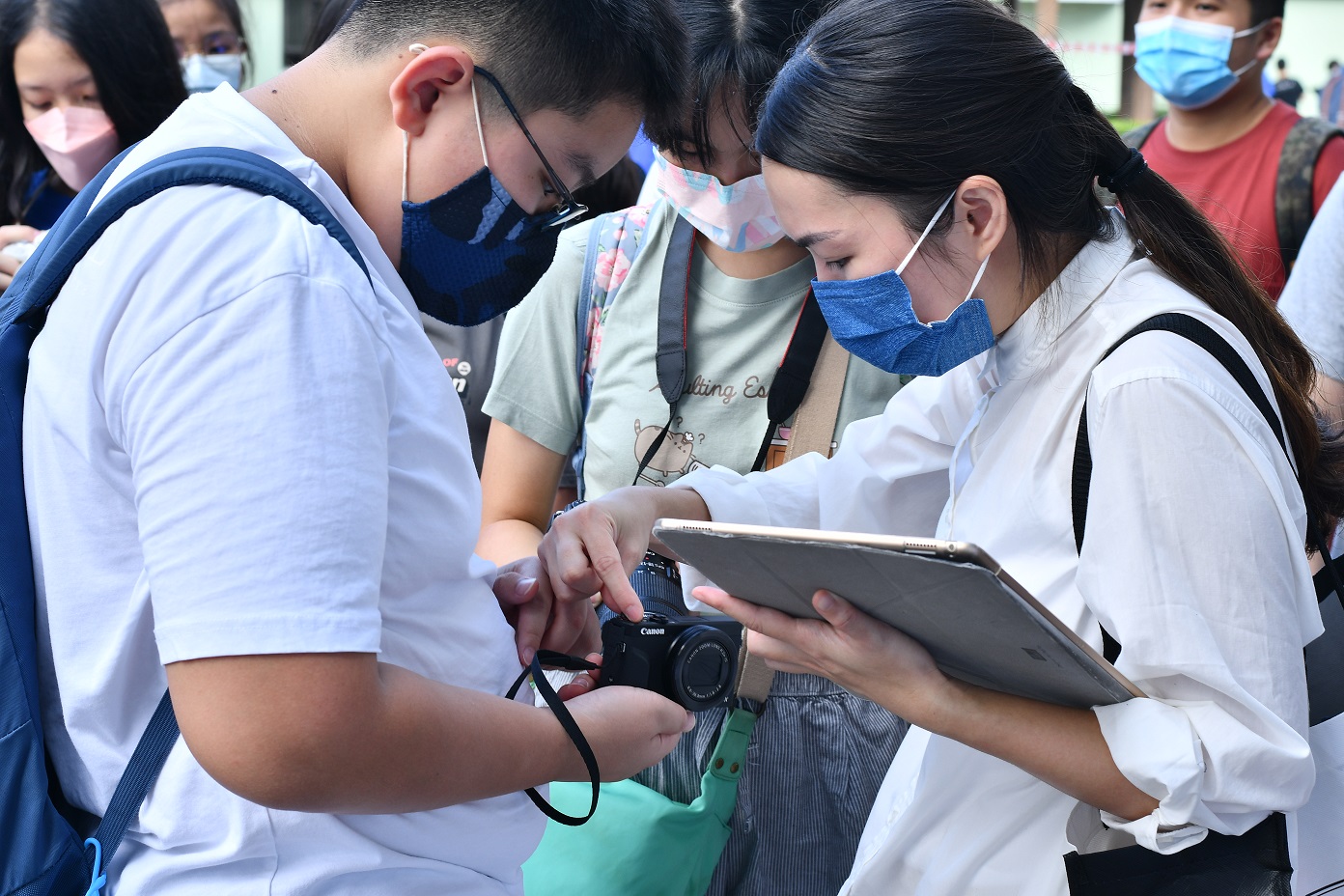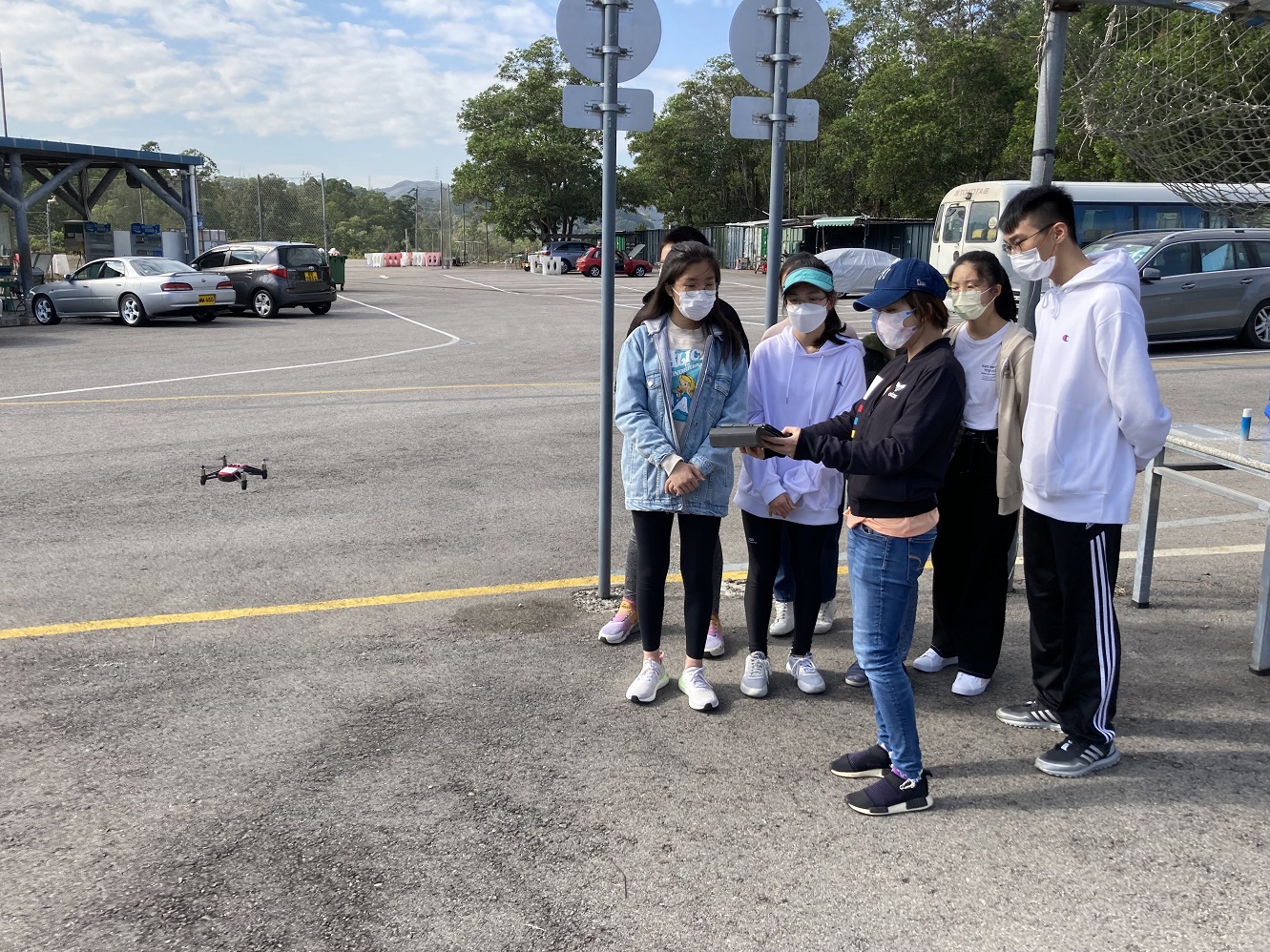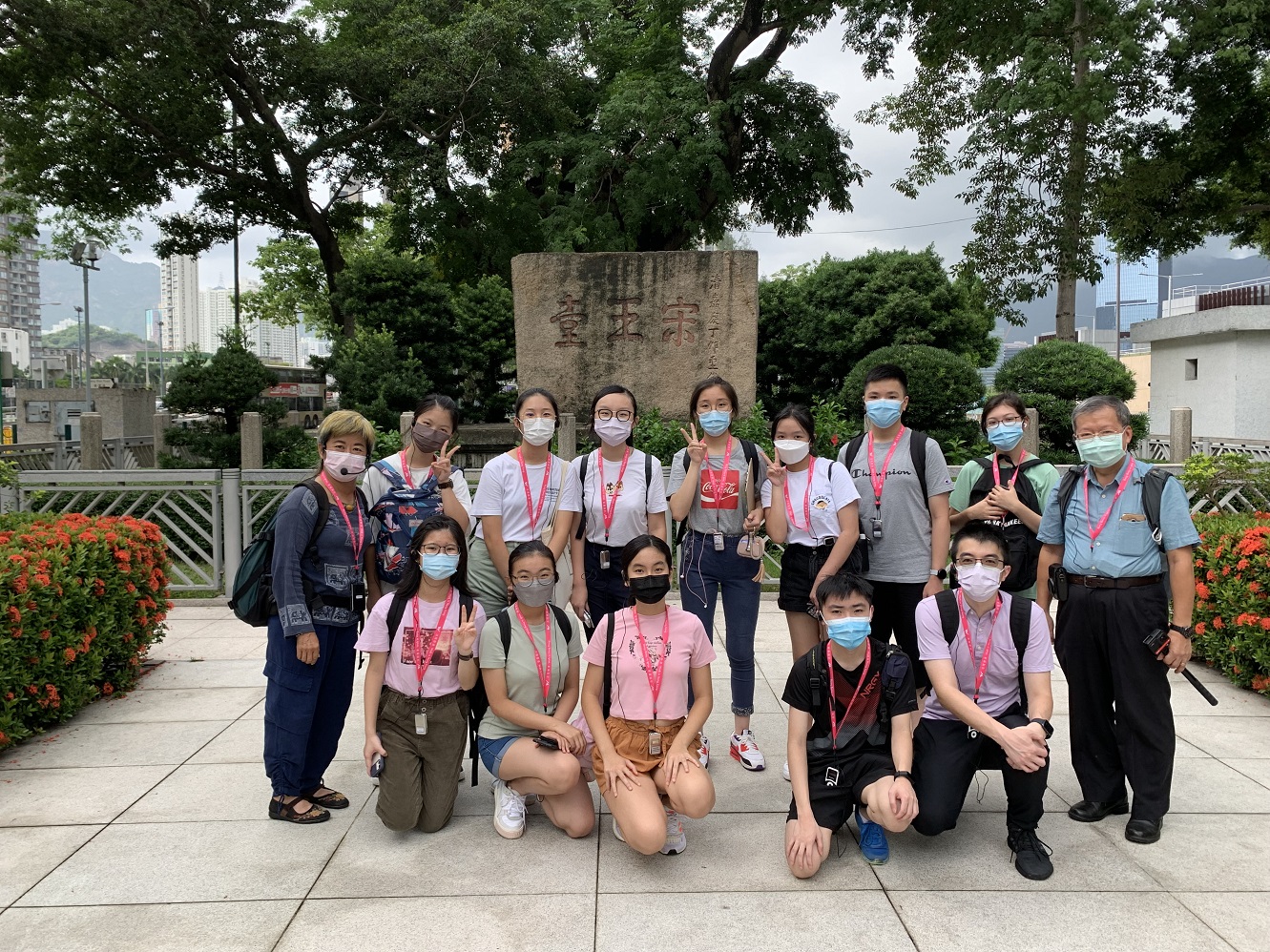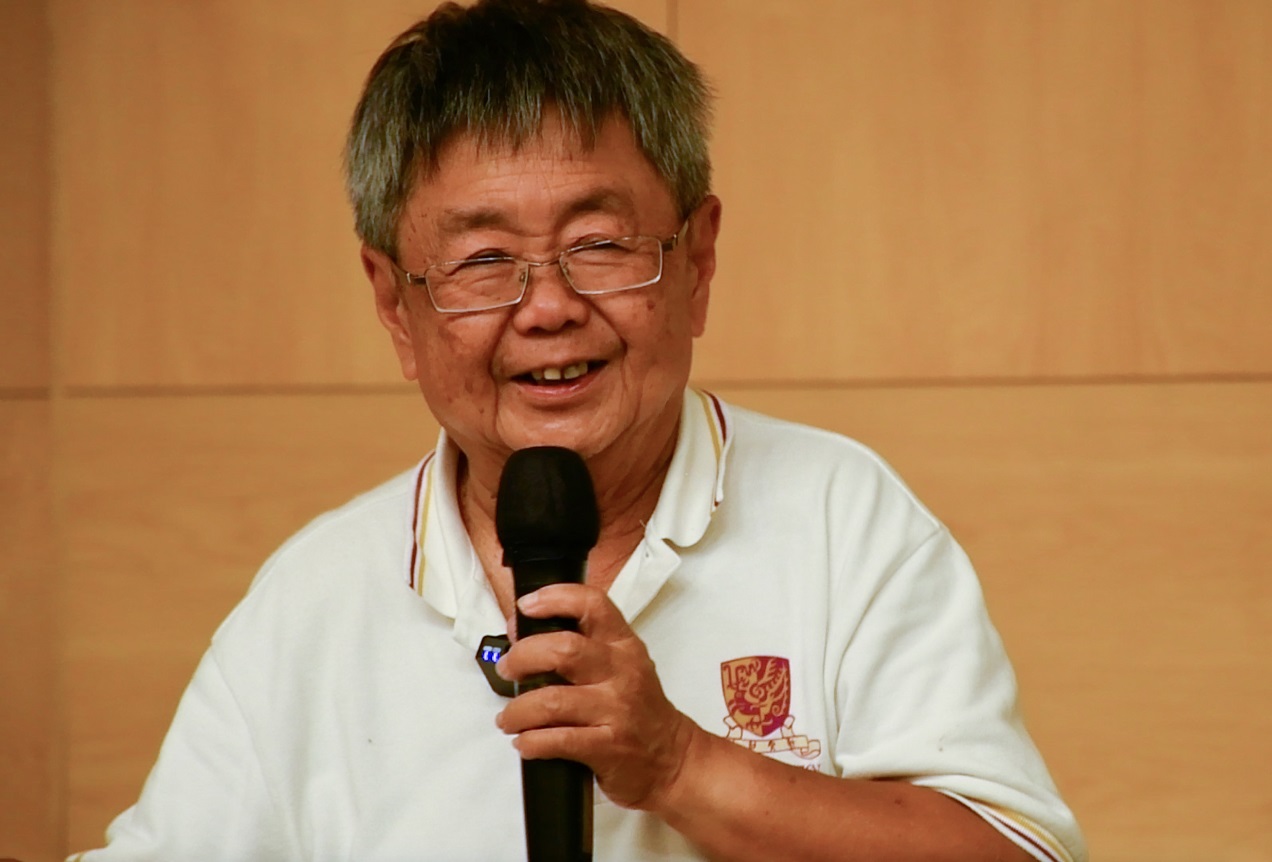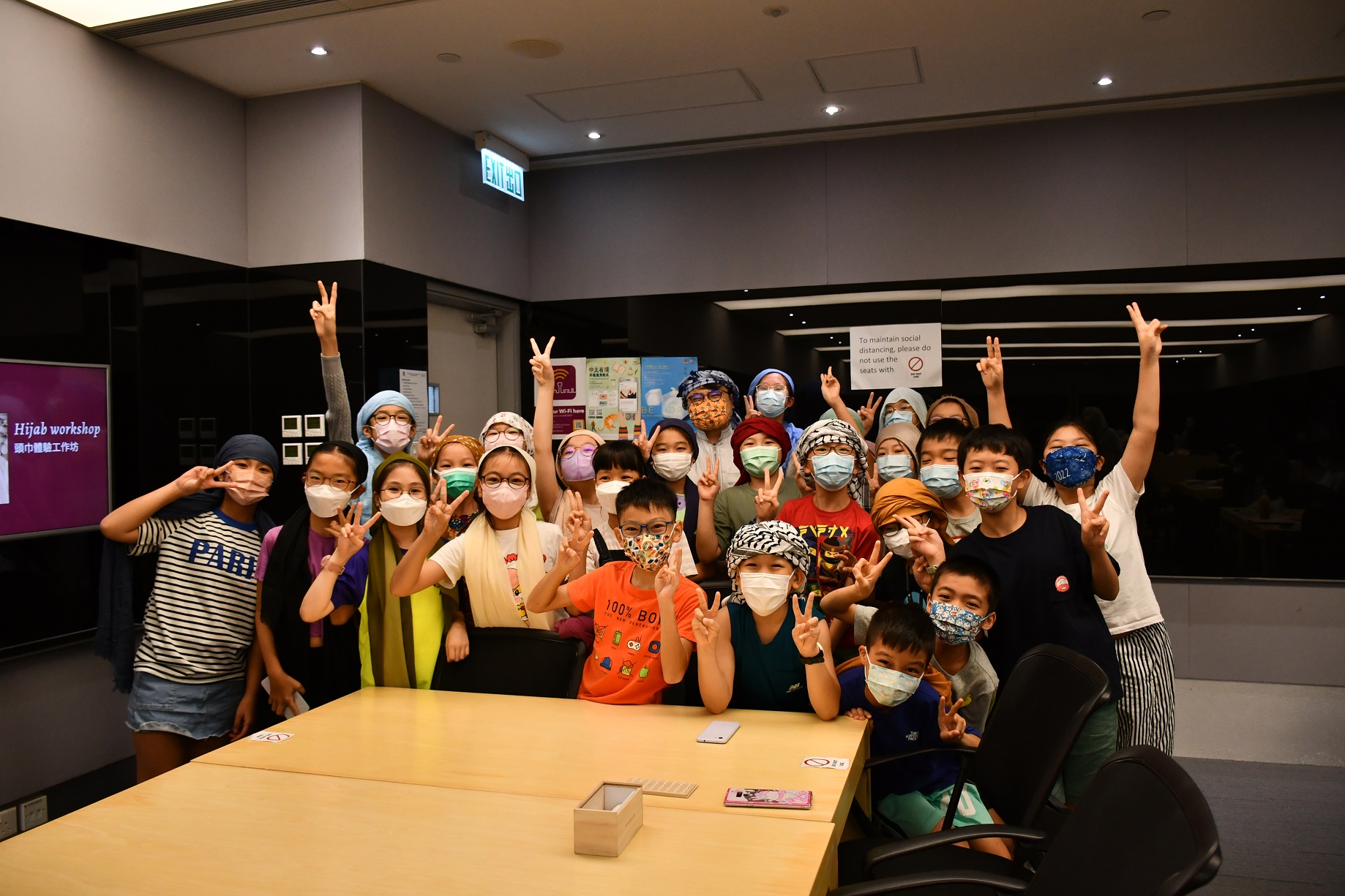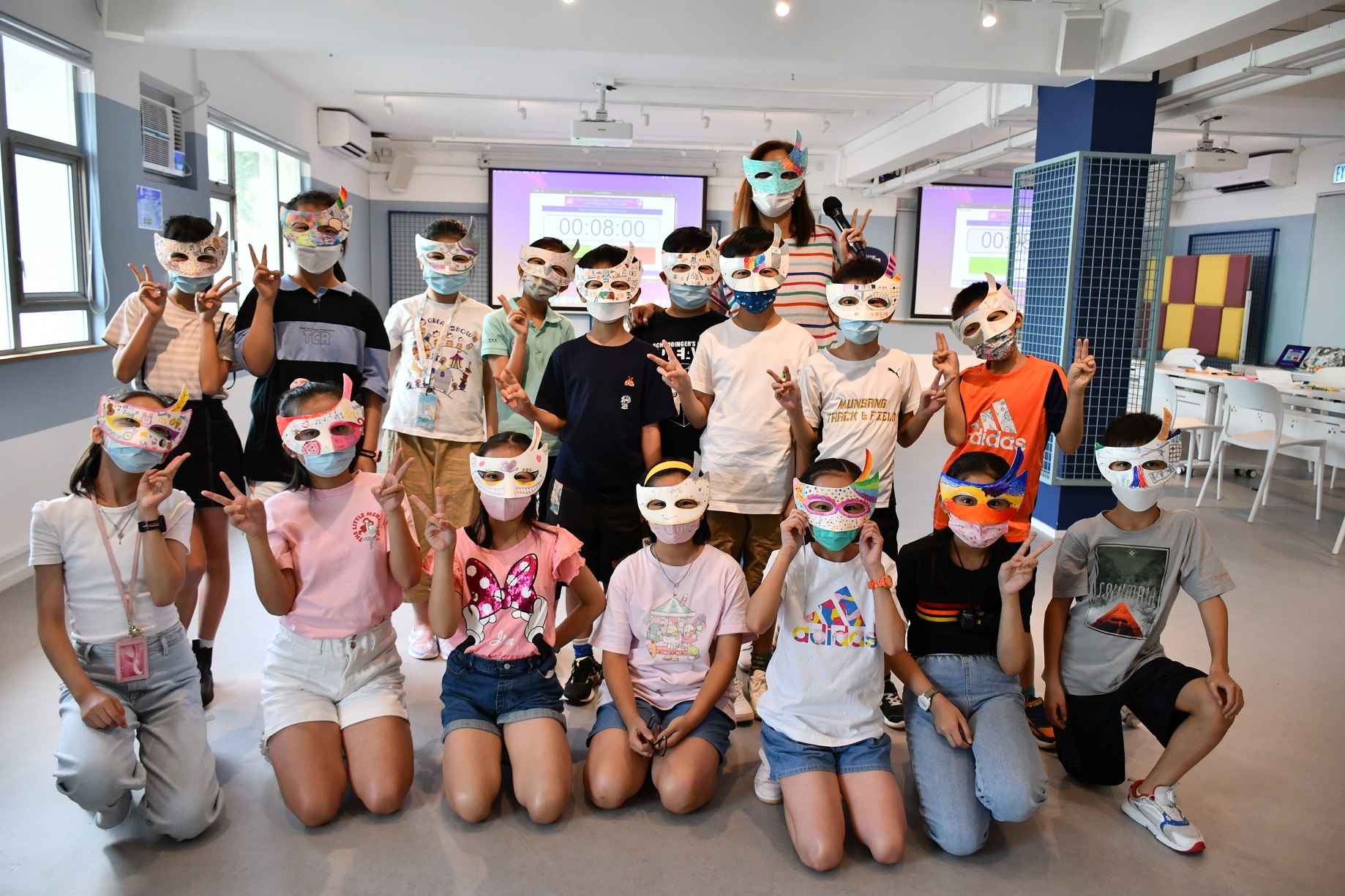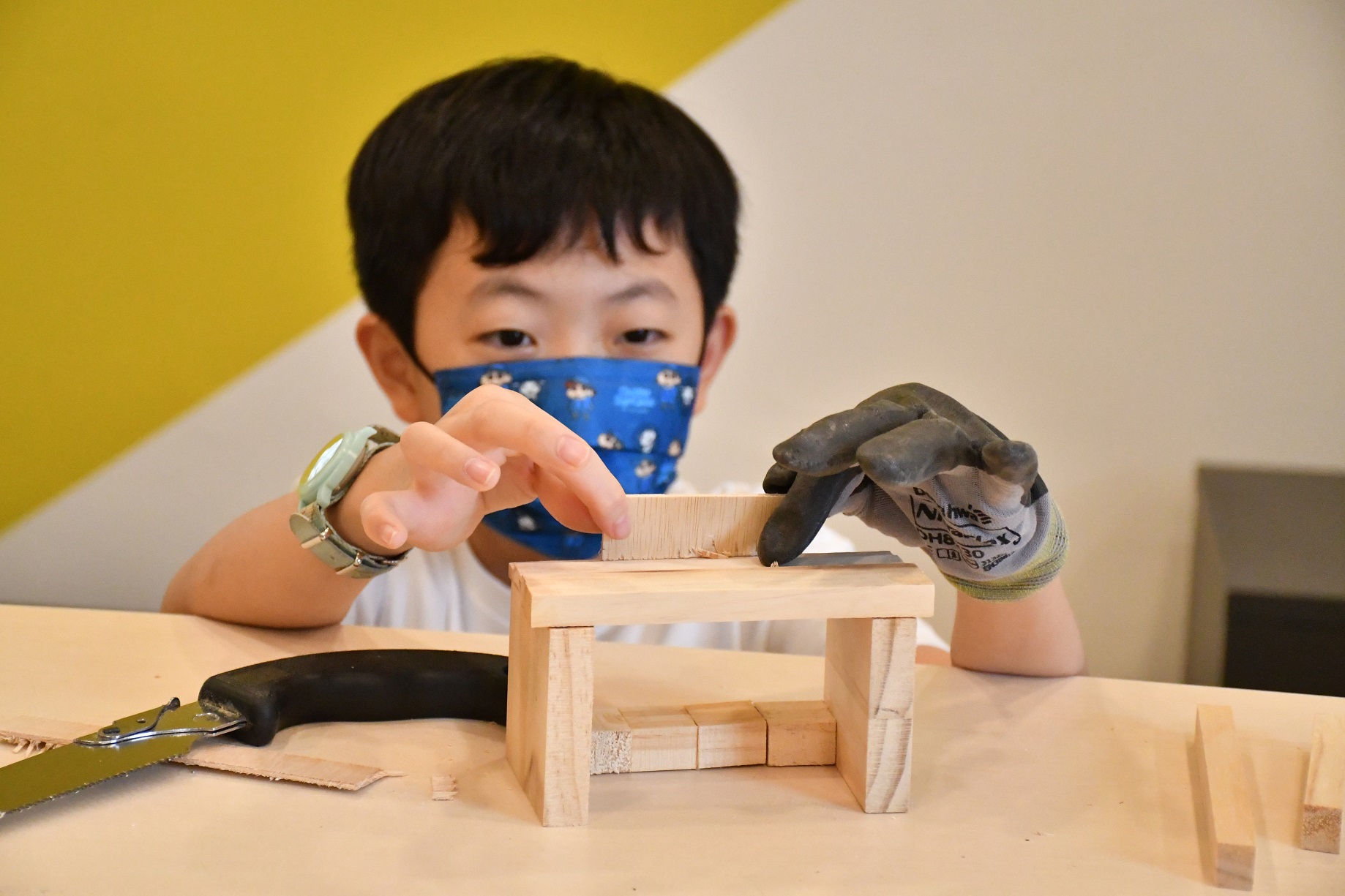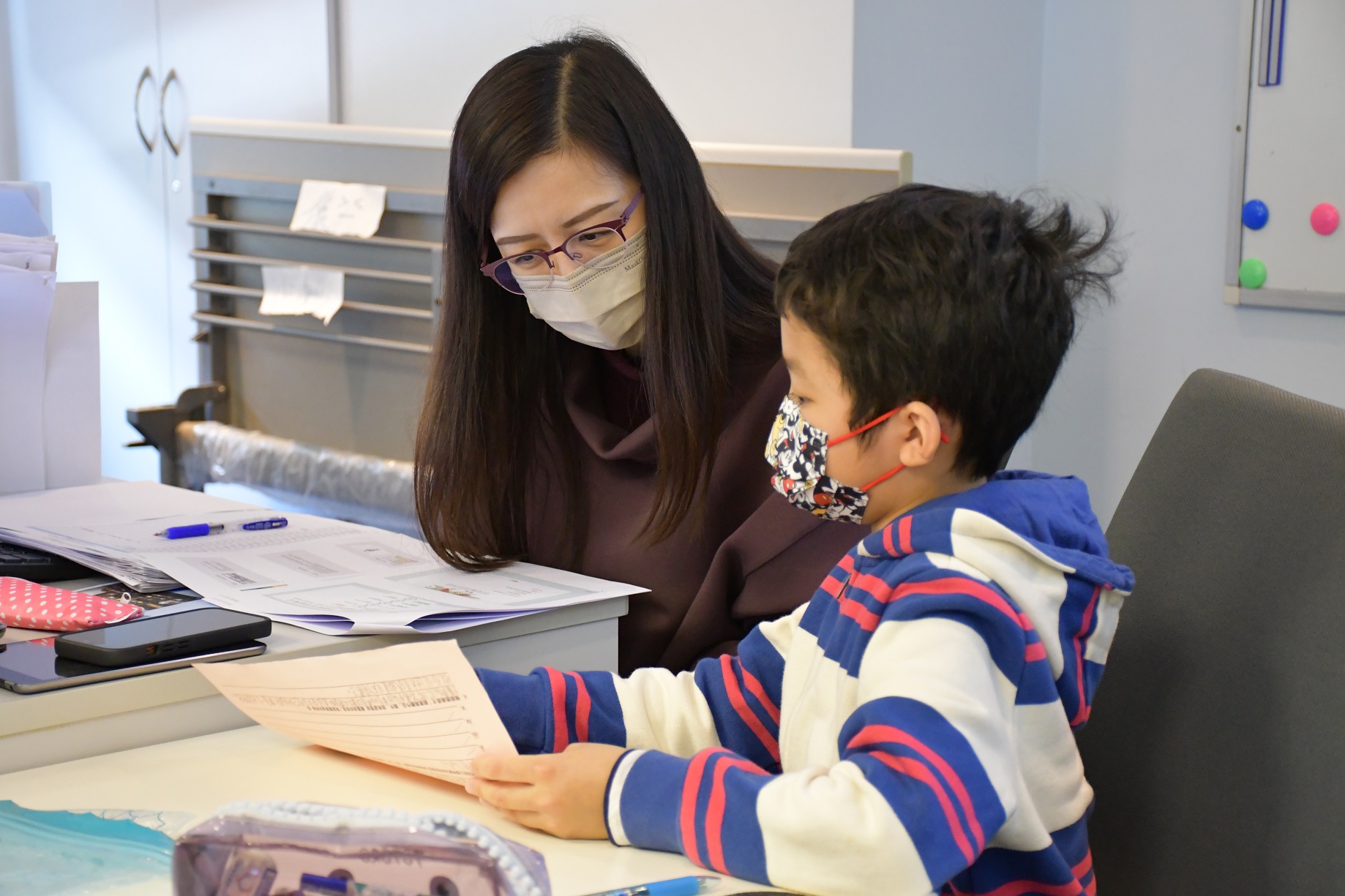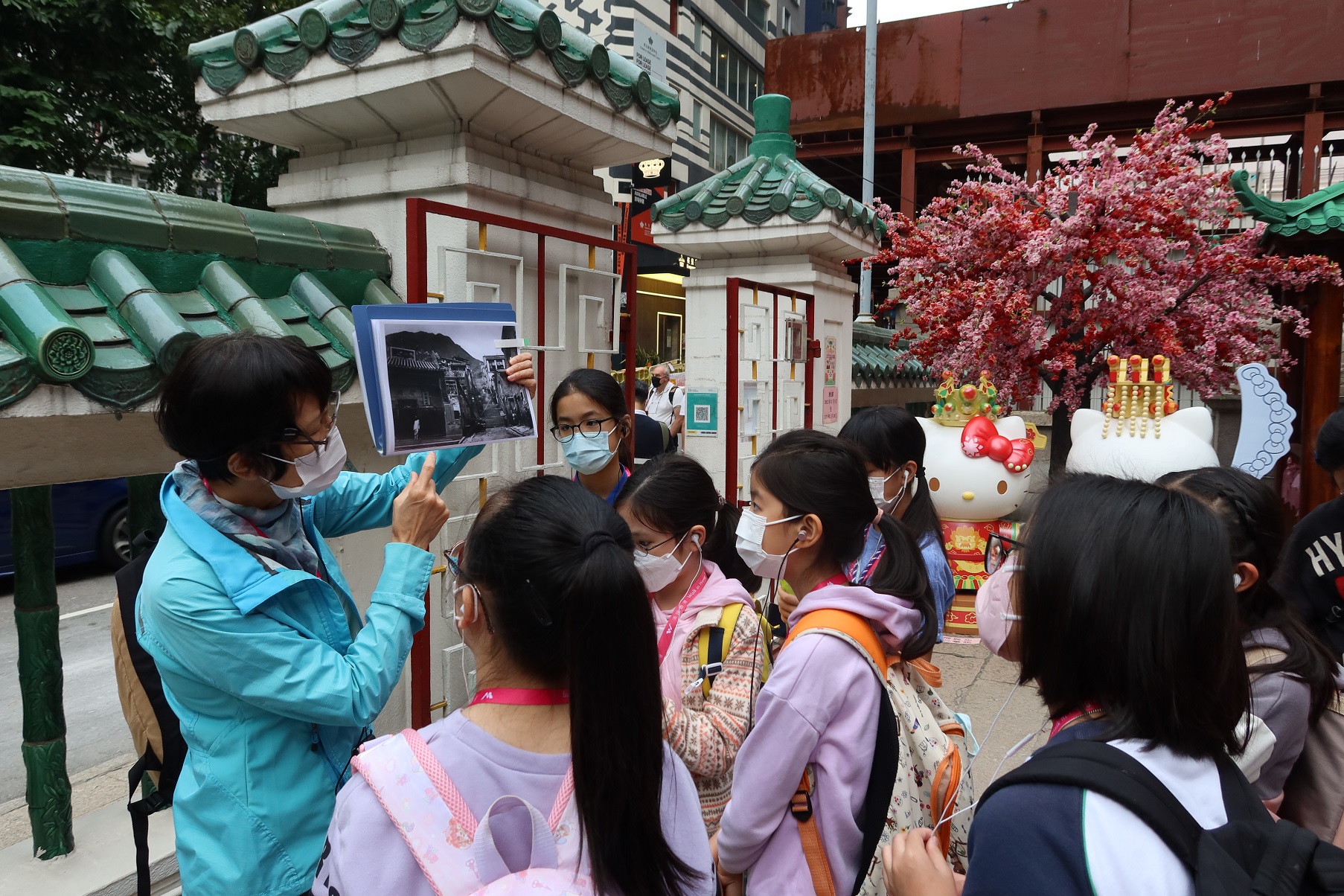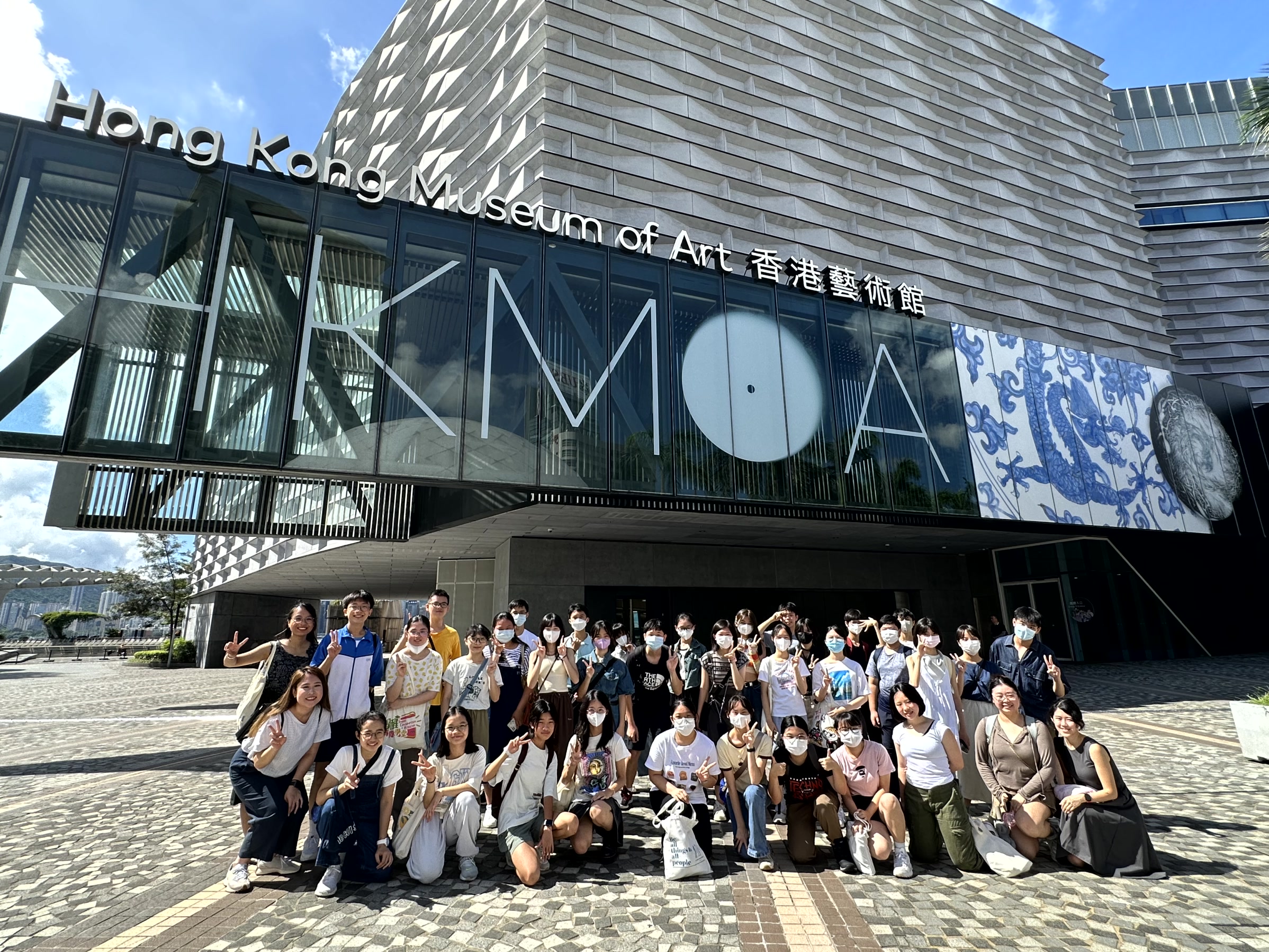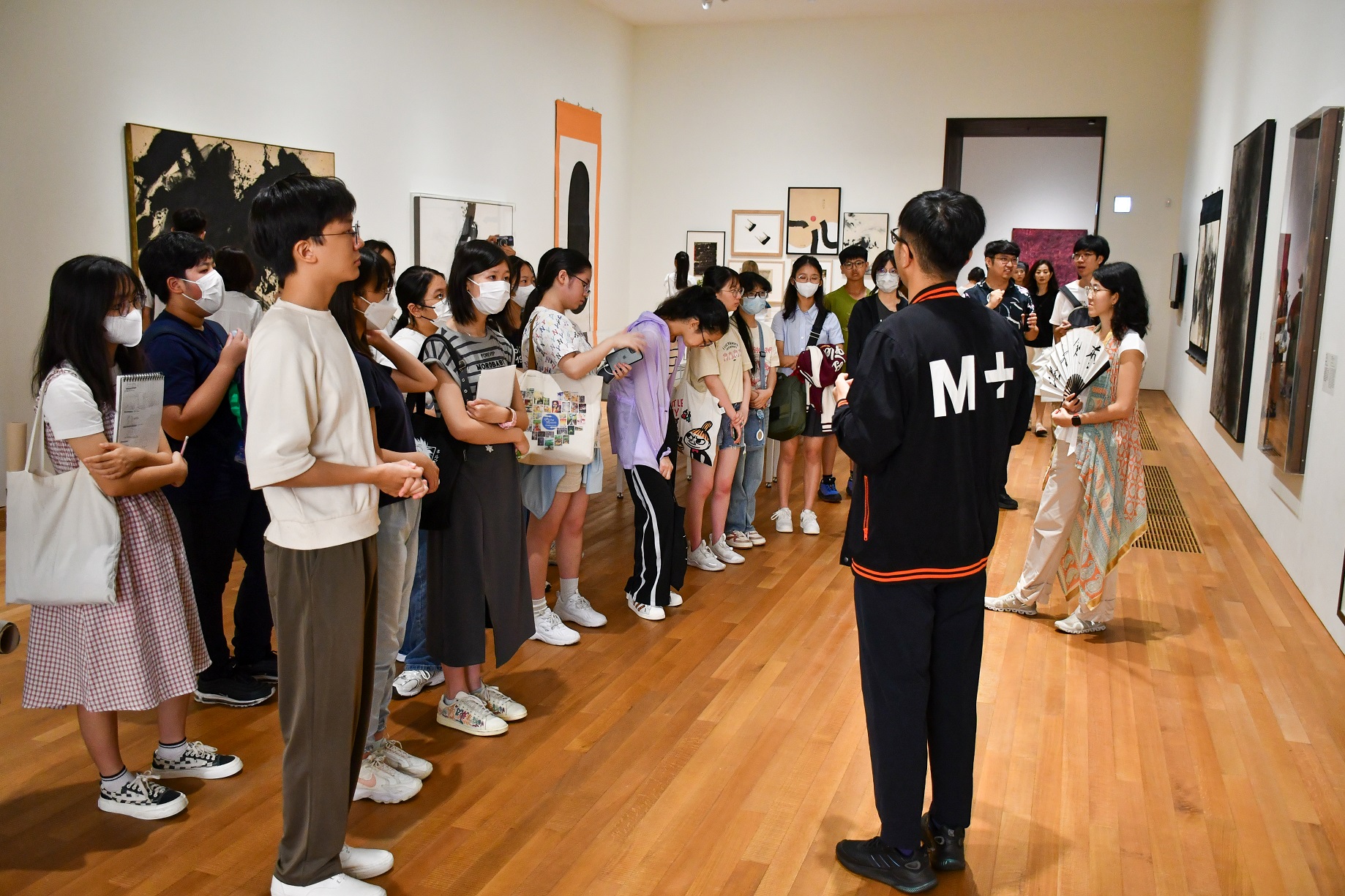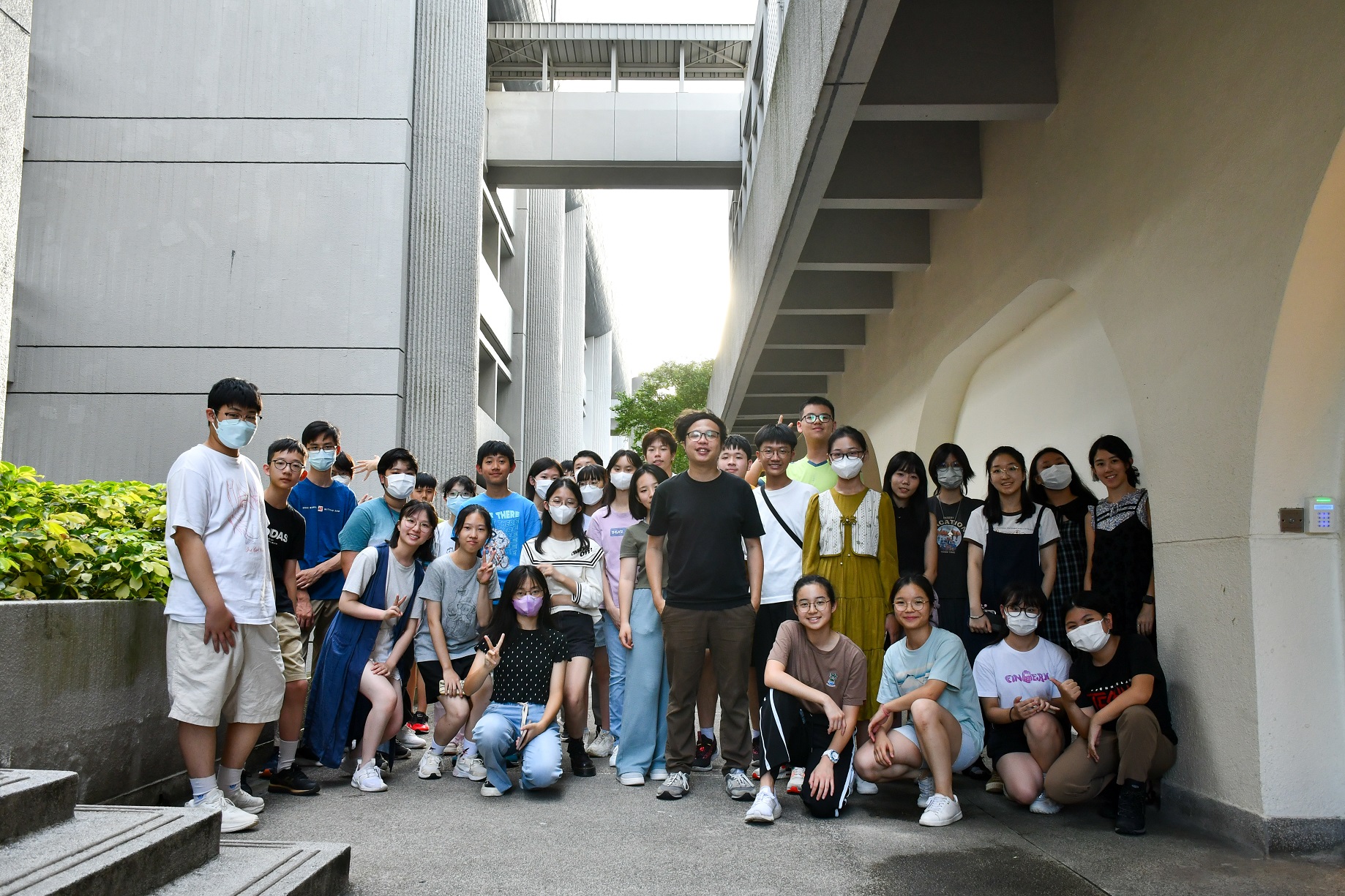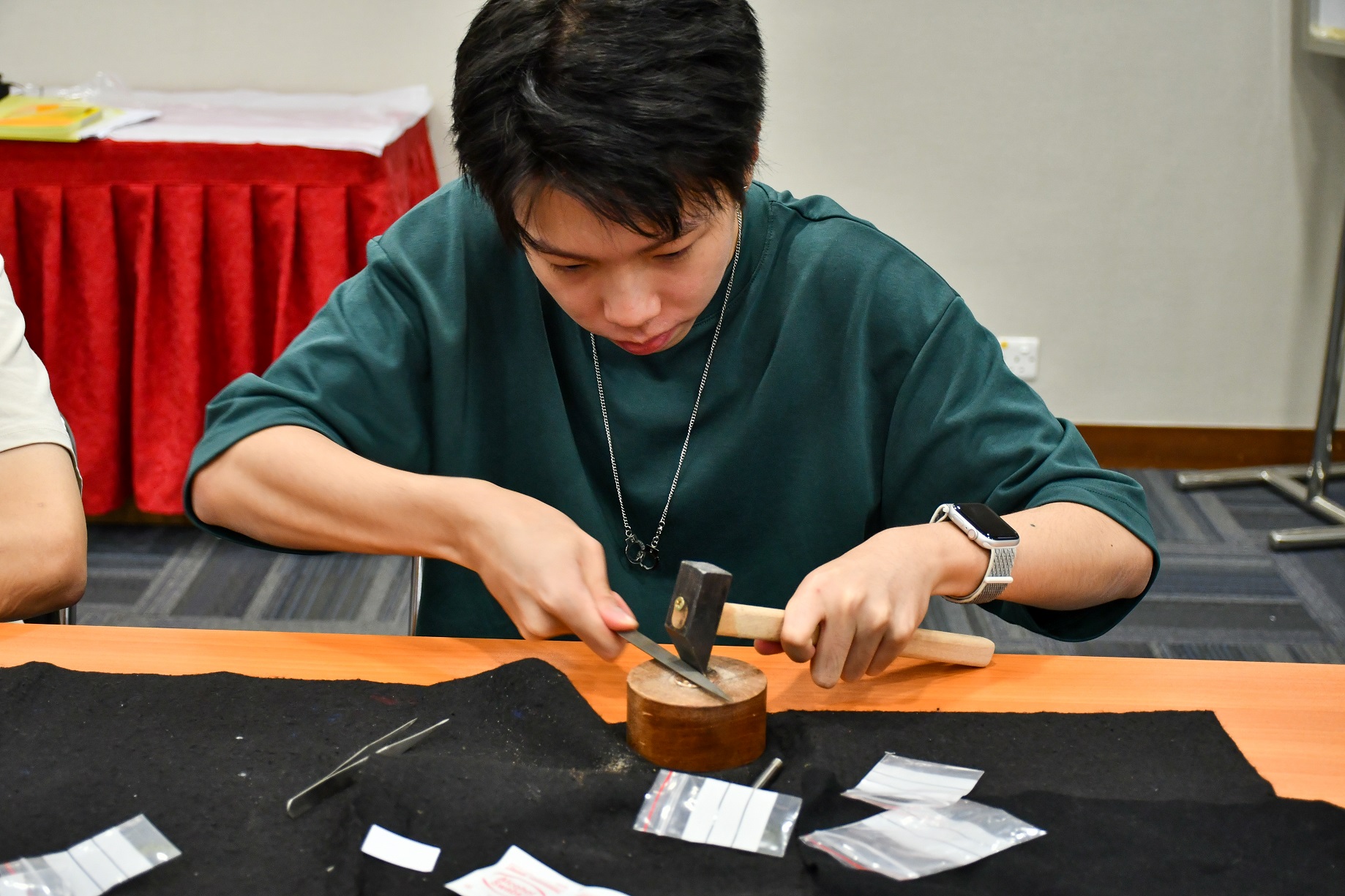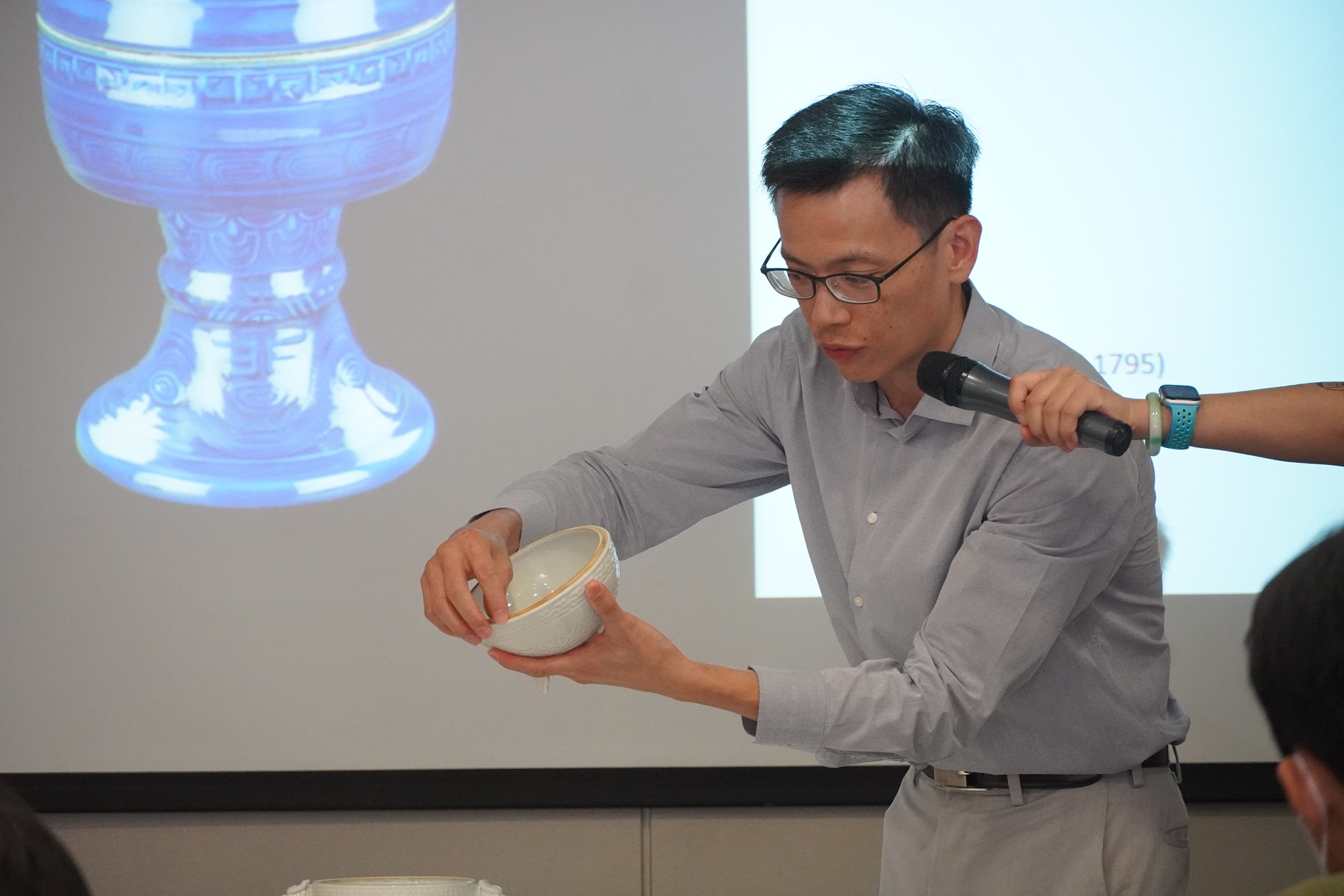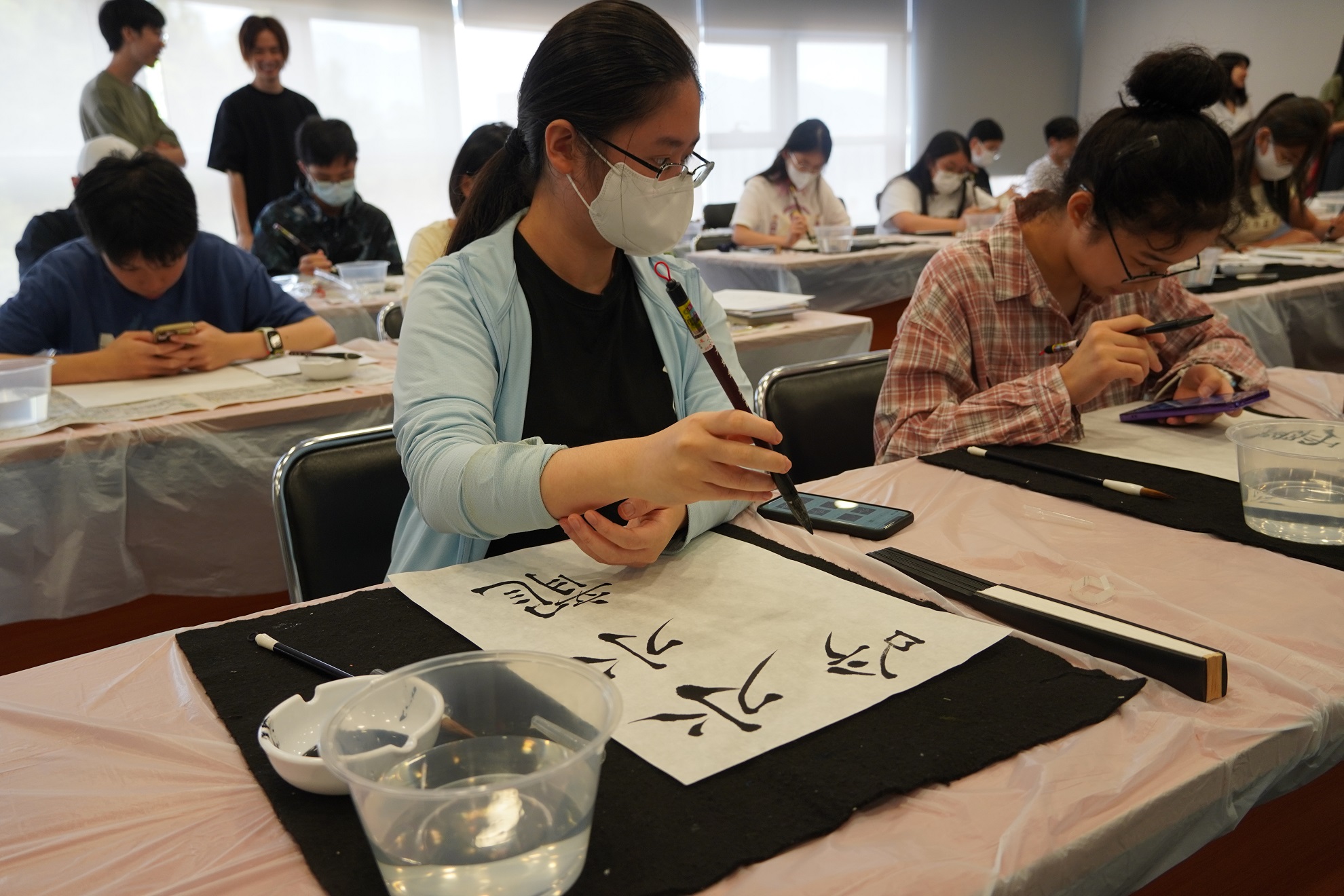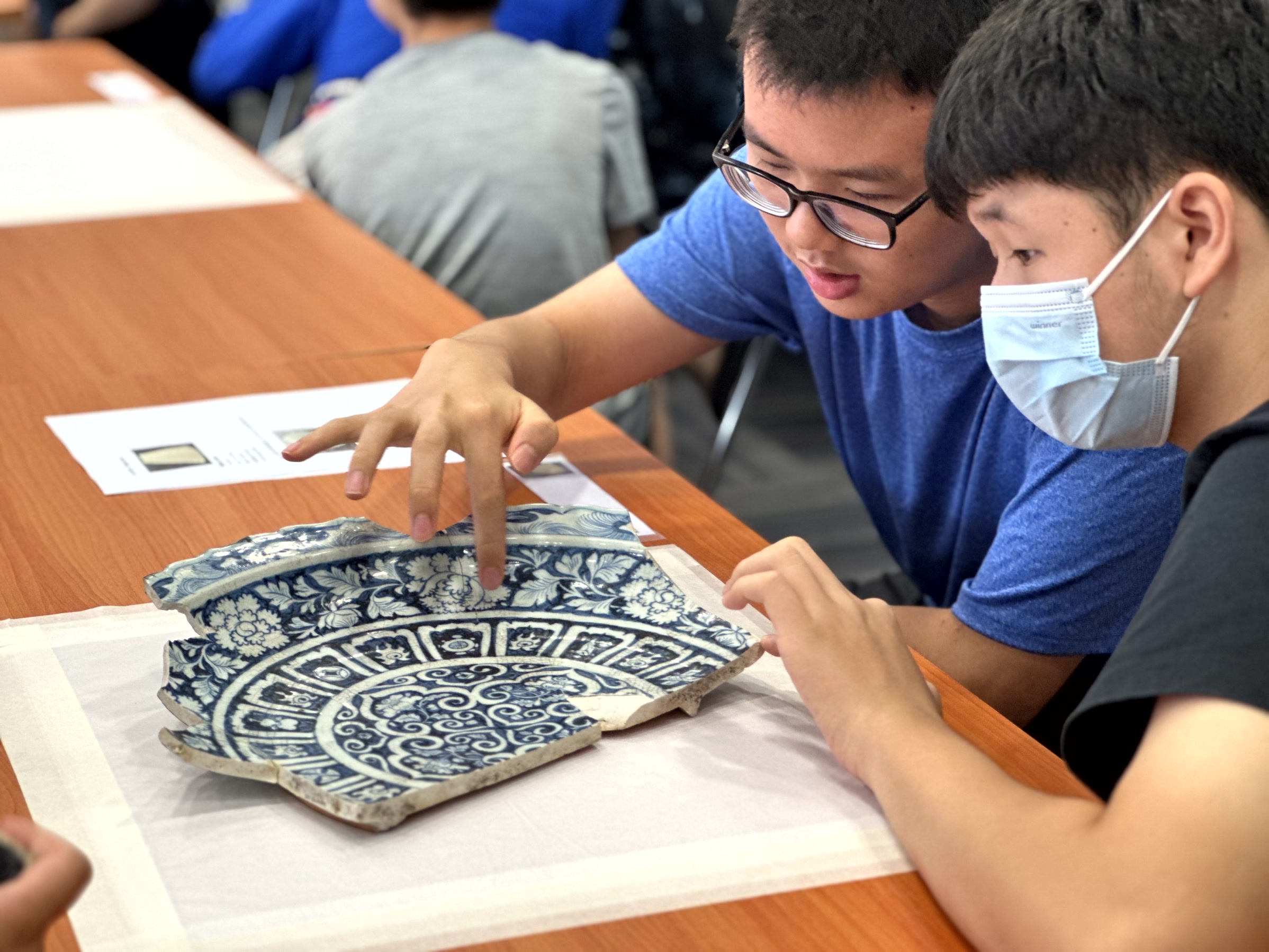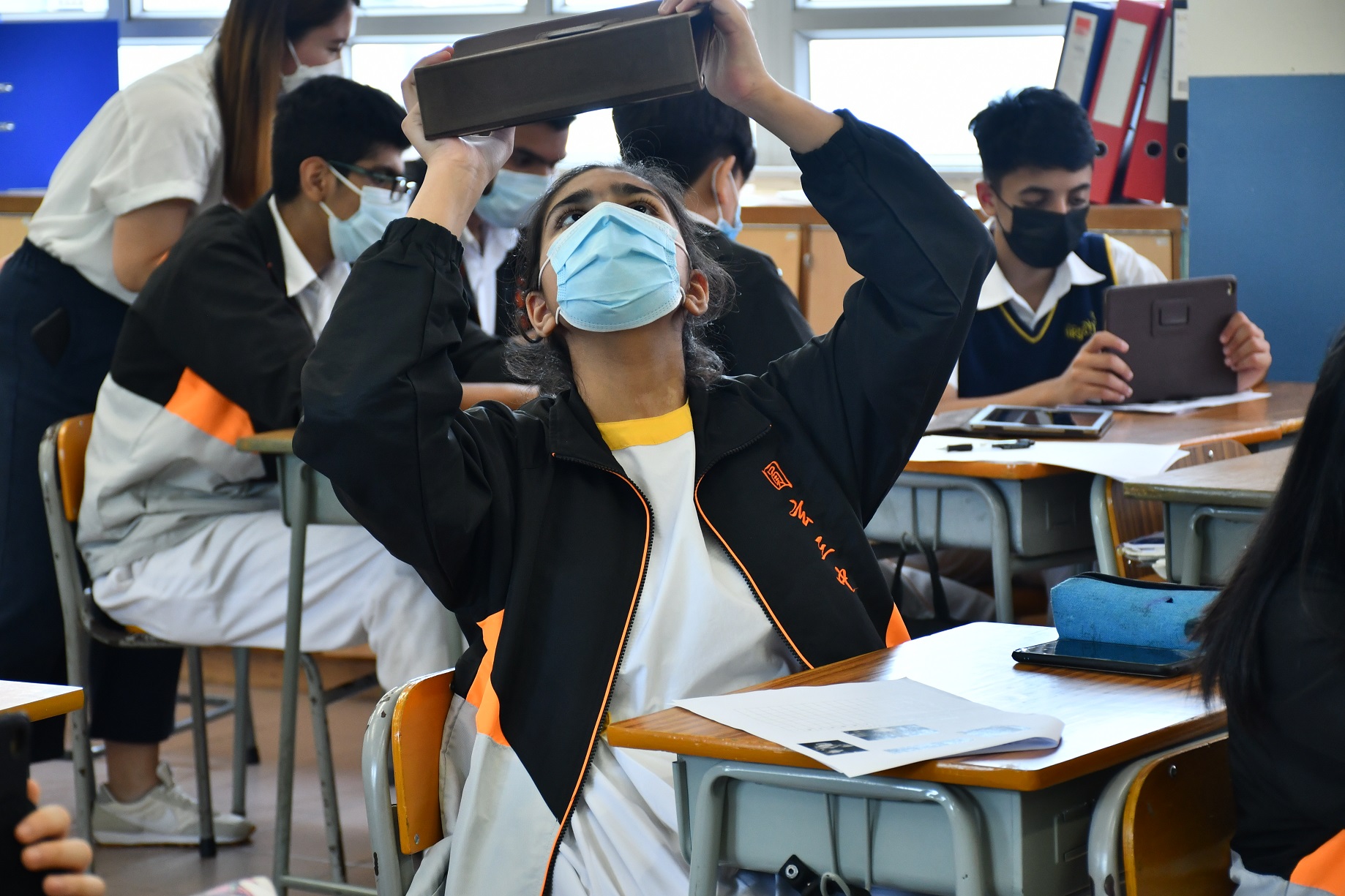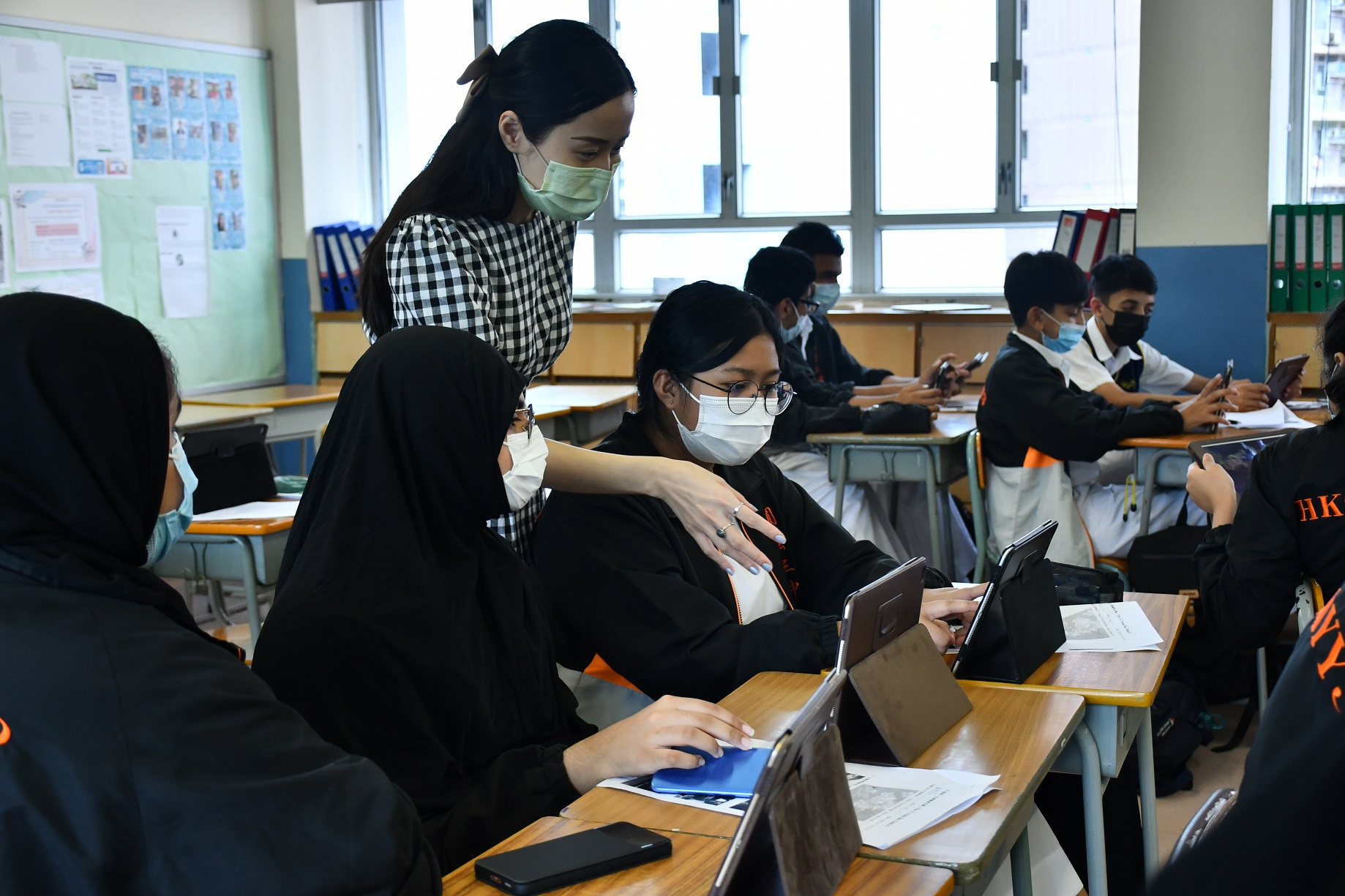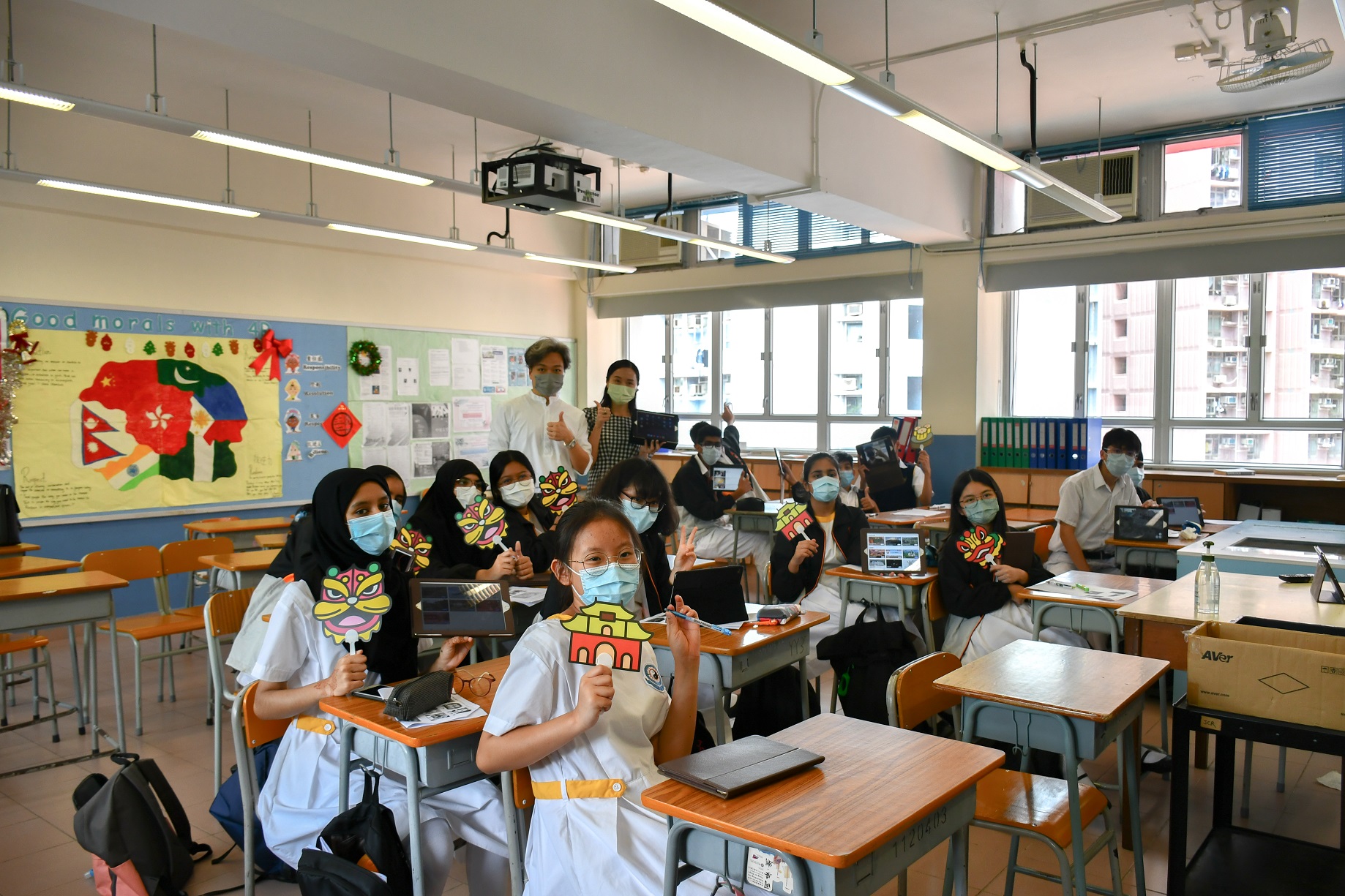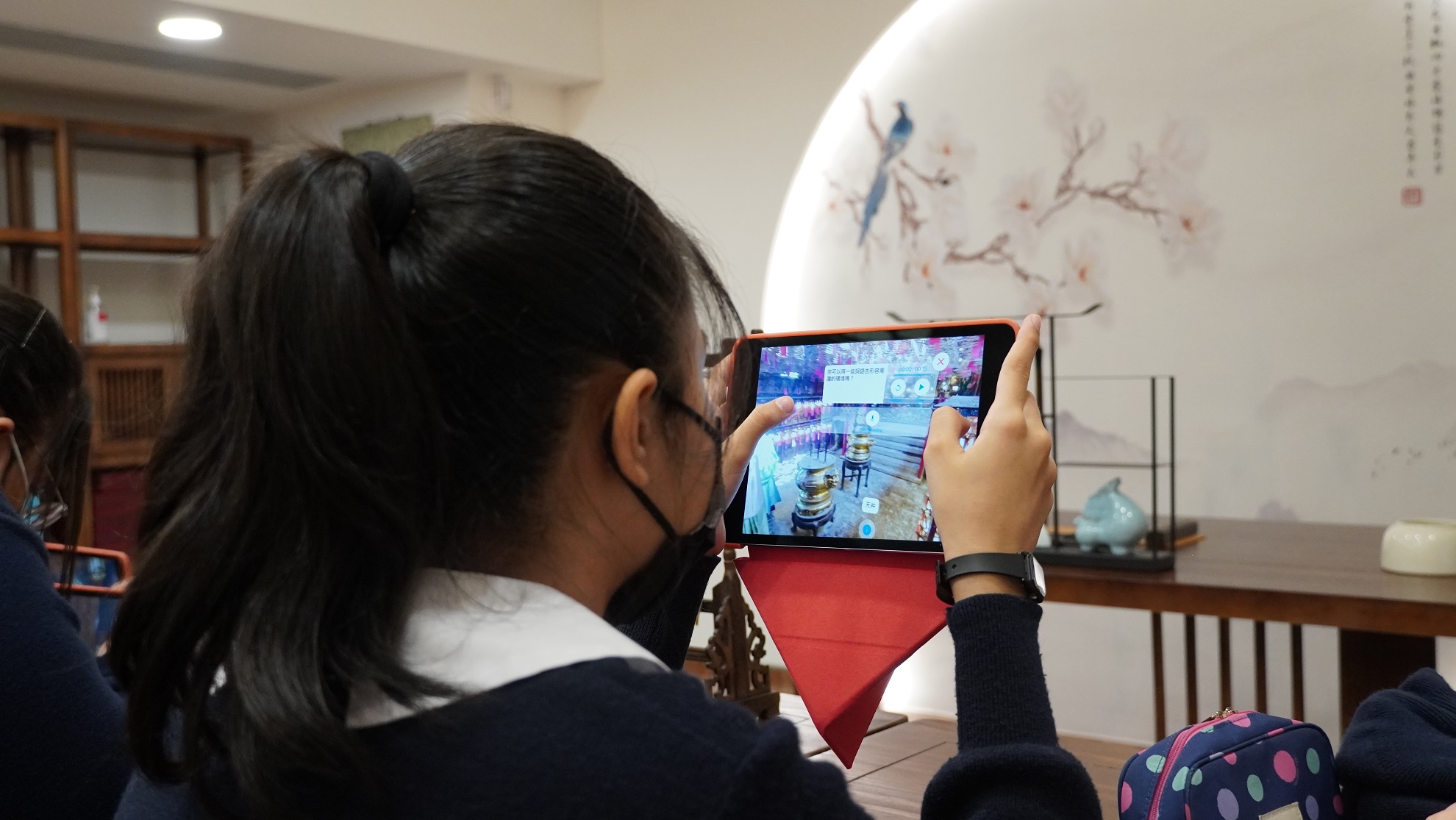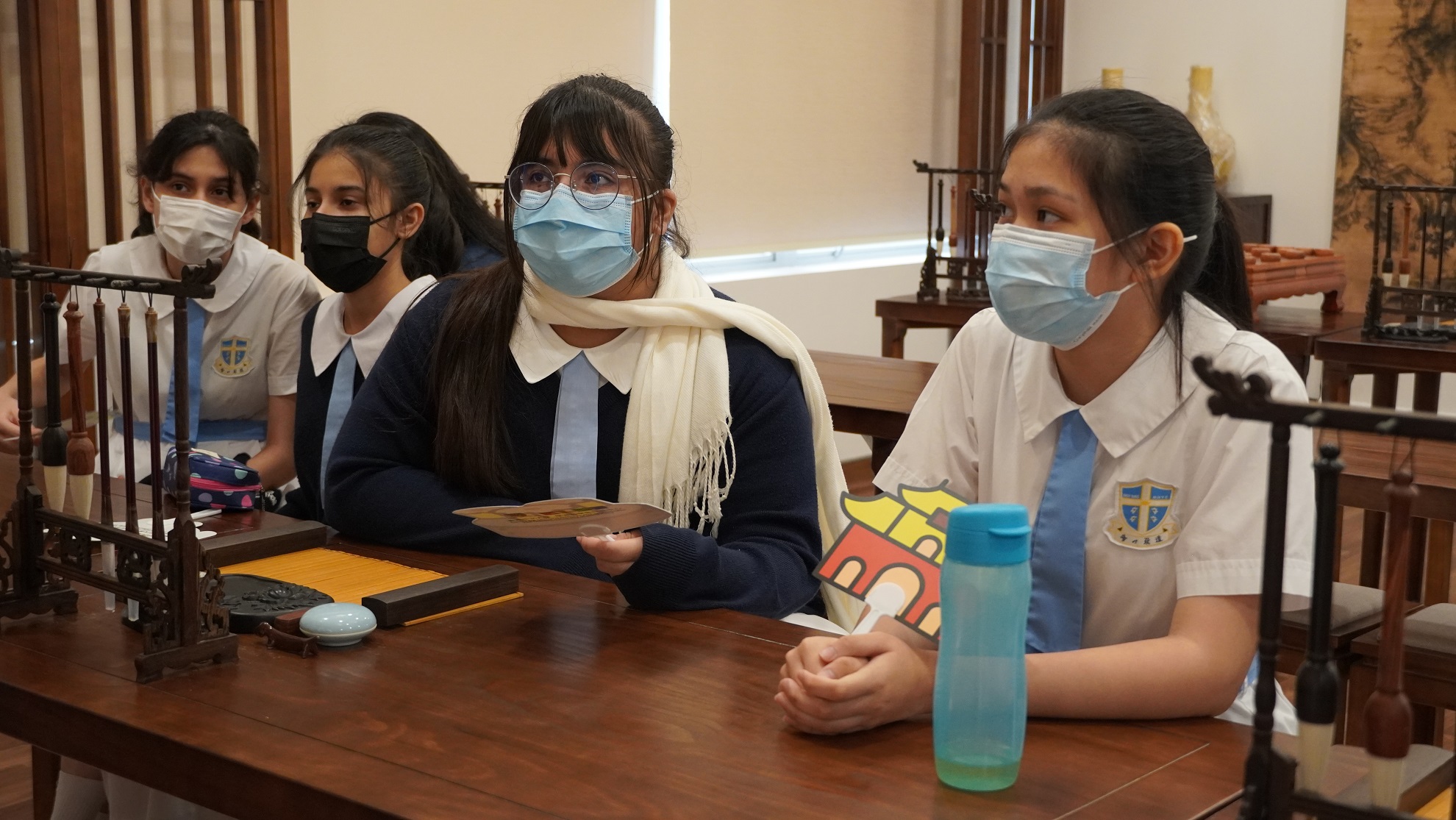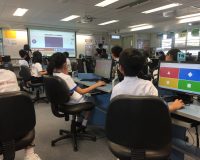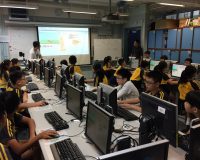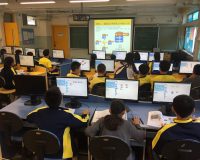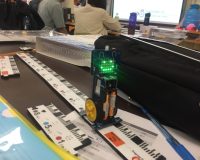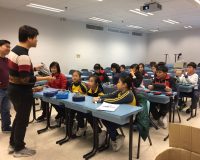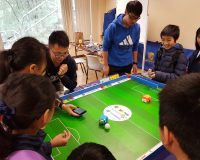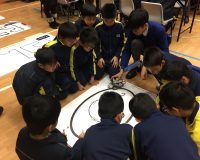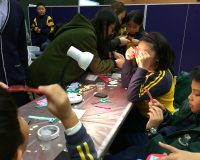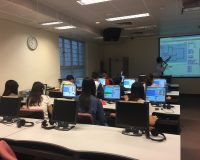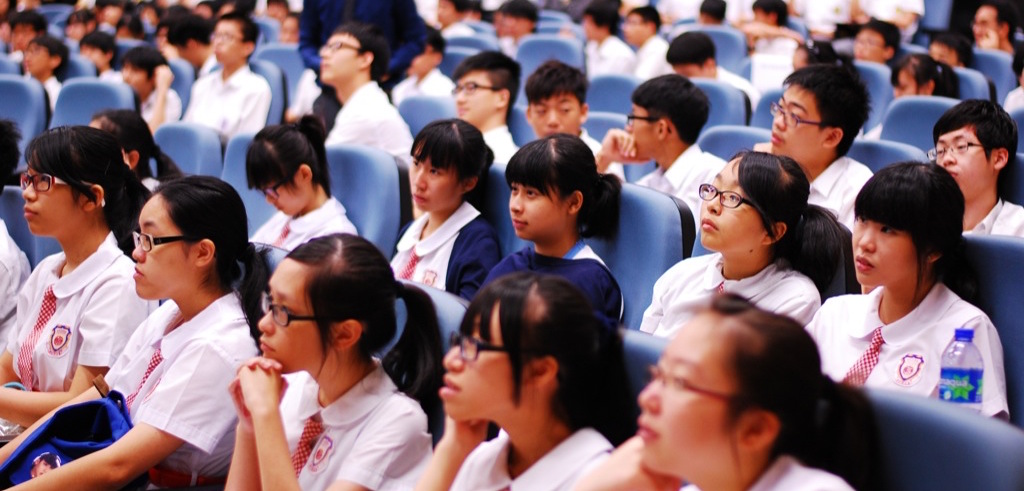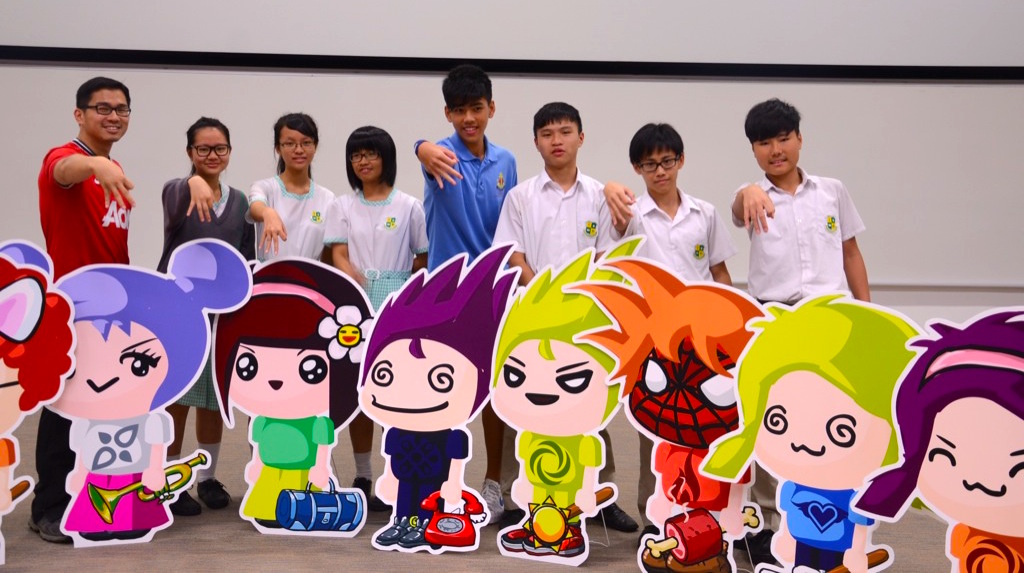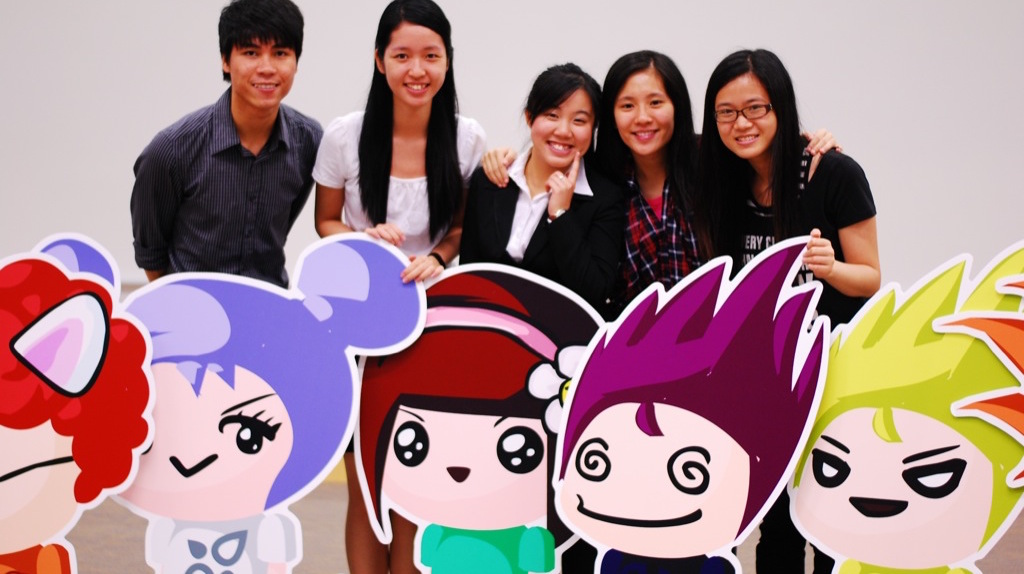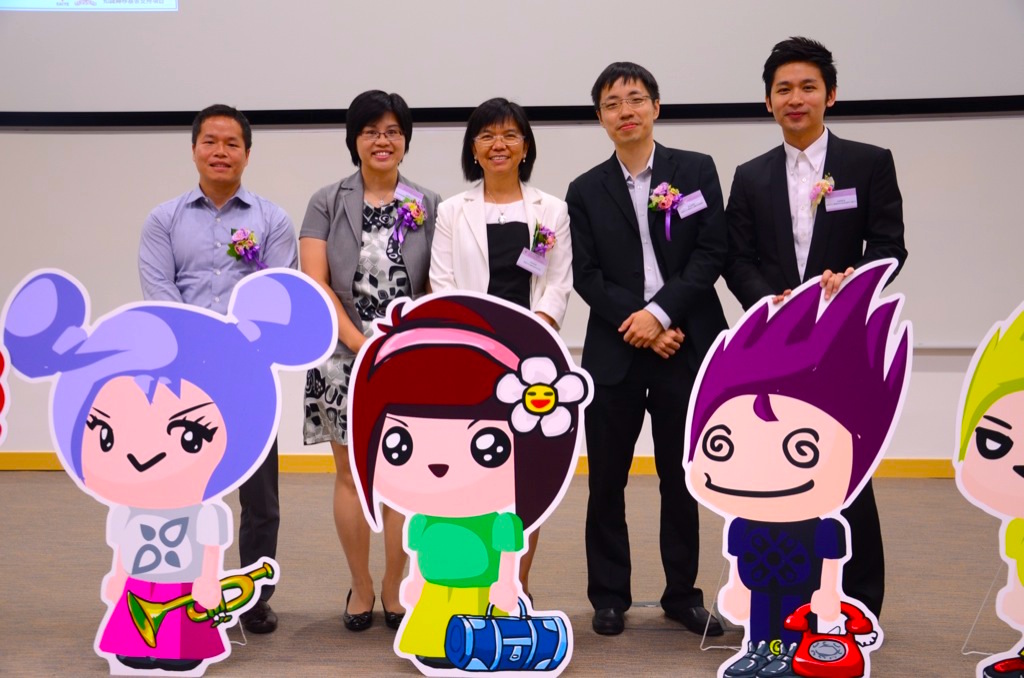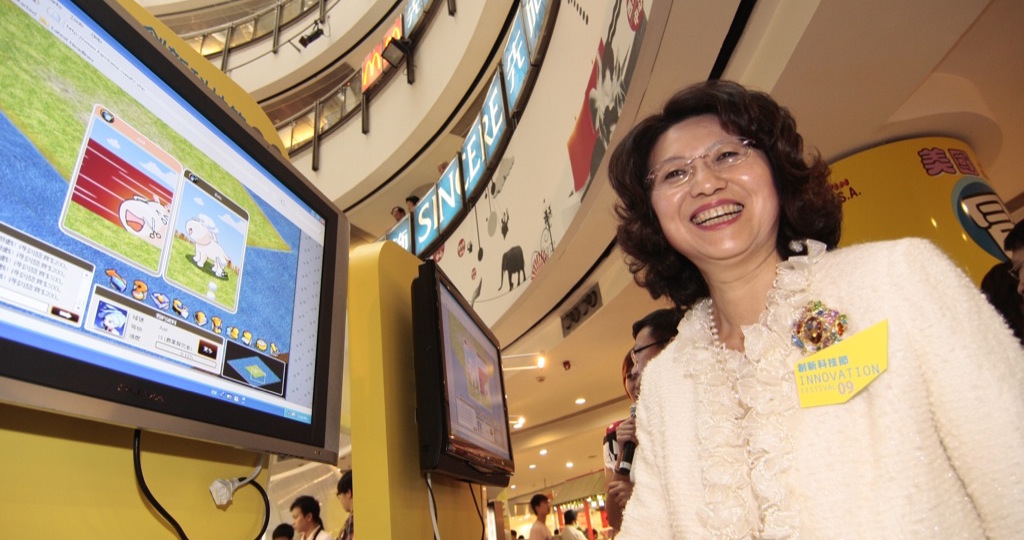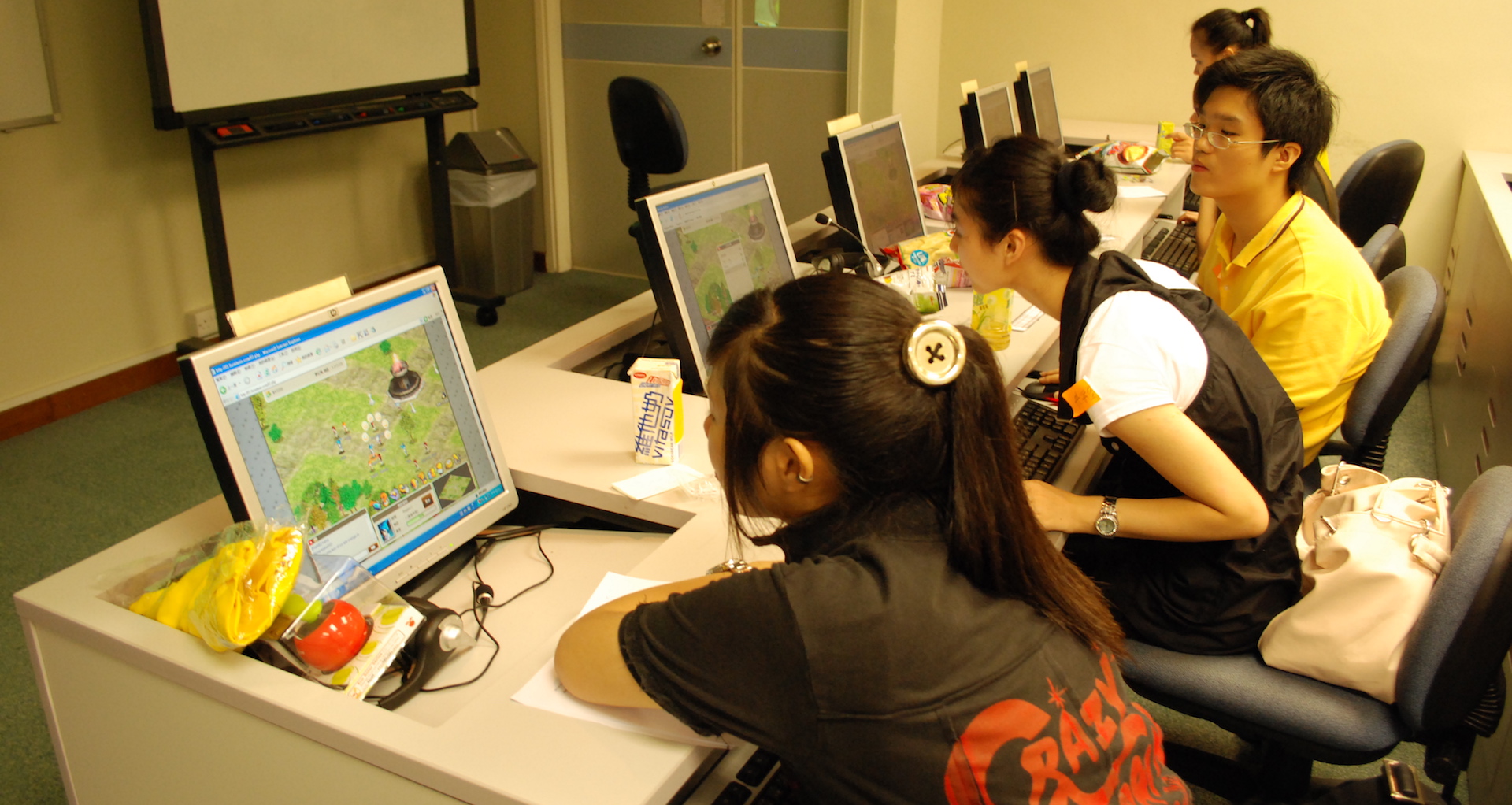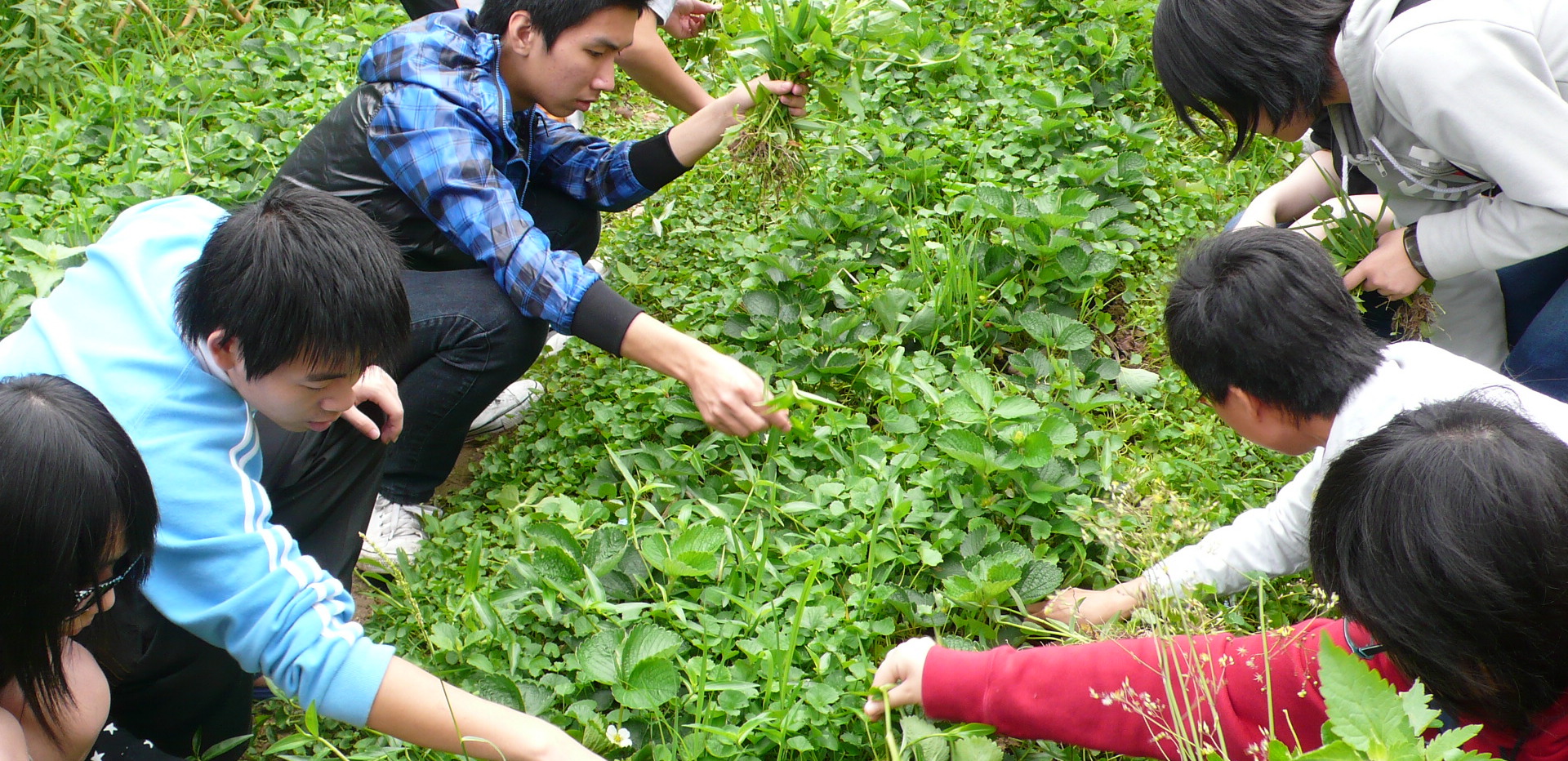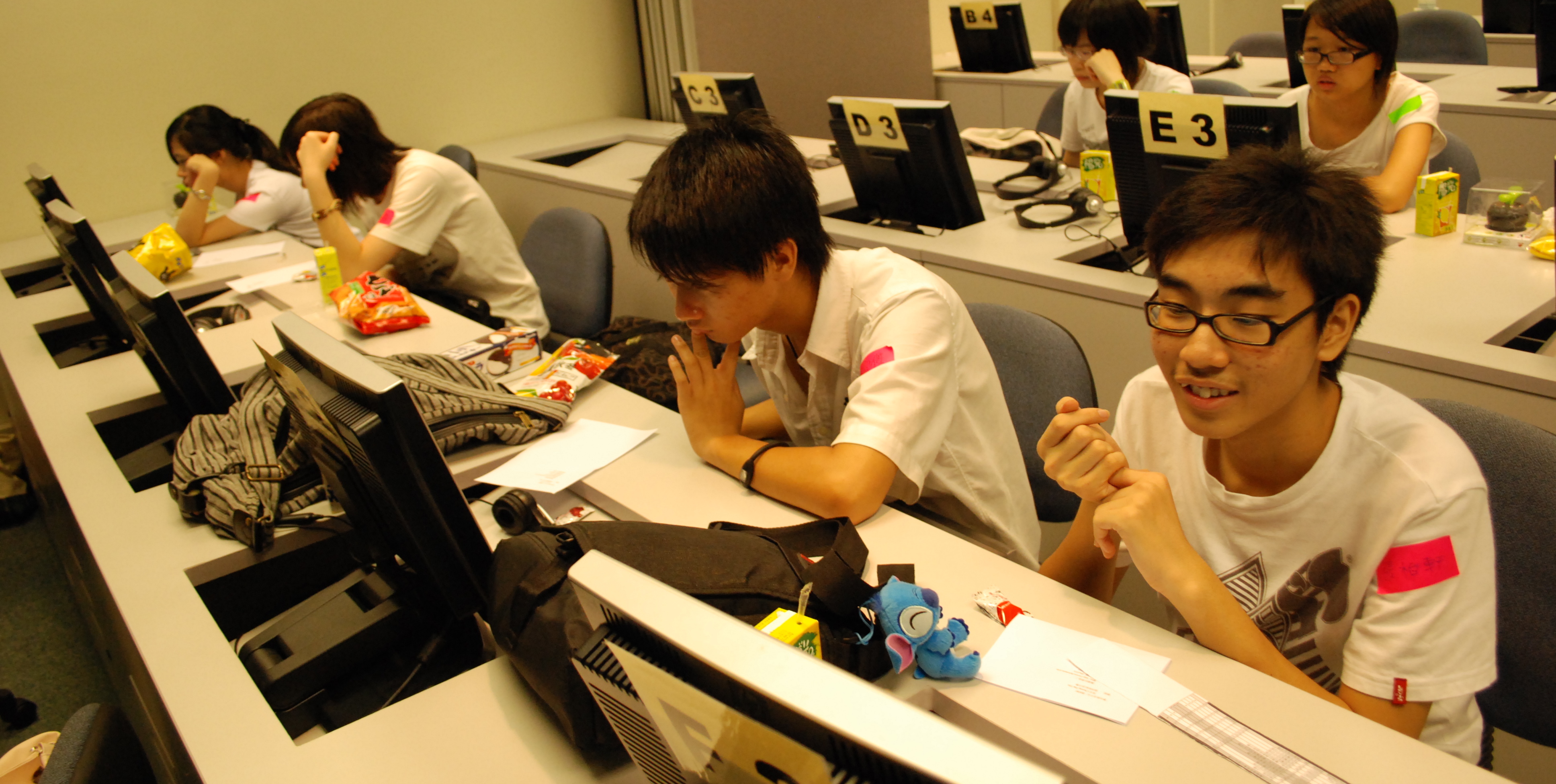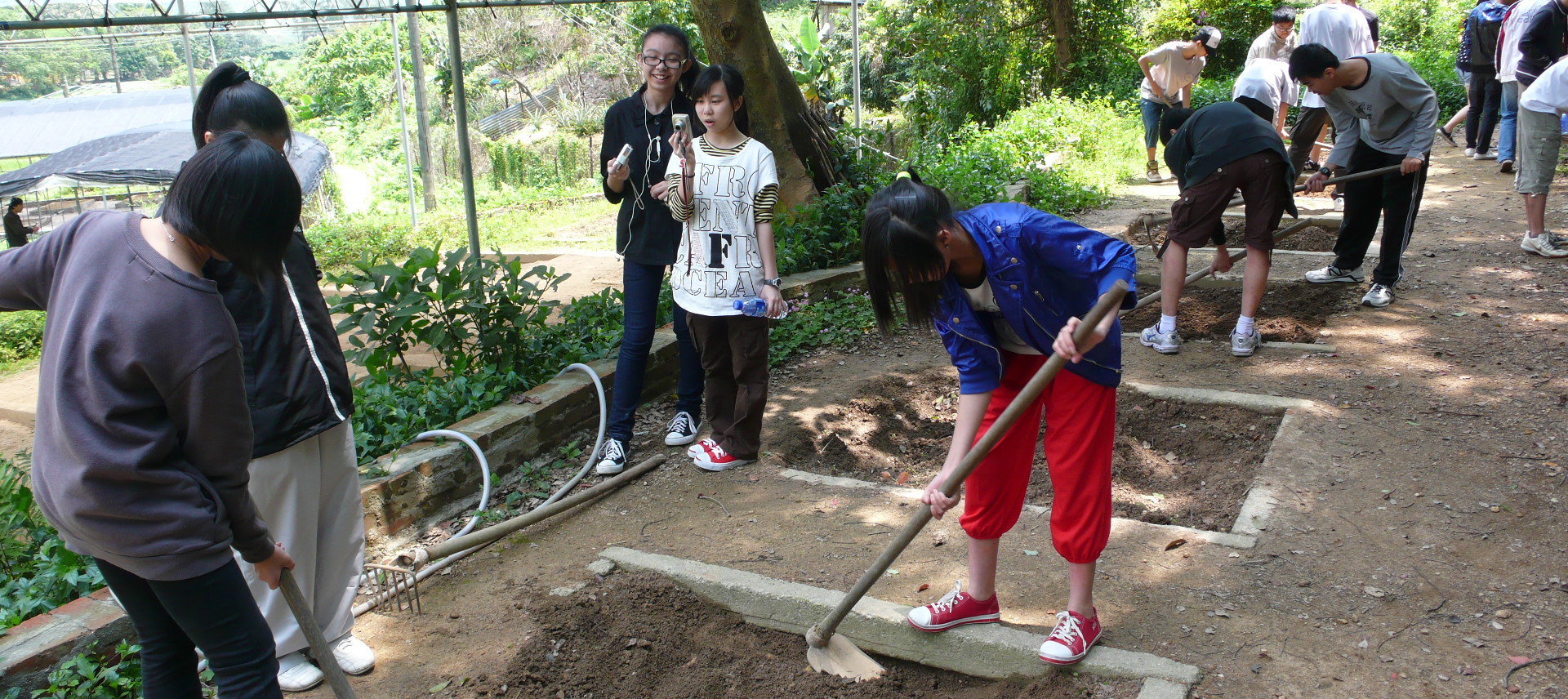EduVenture-VR®
An Integrated Virtual Reality Mobile Educational System
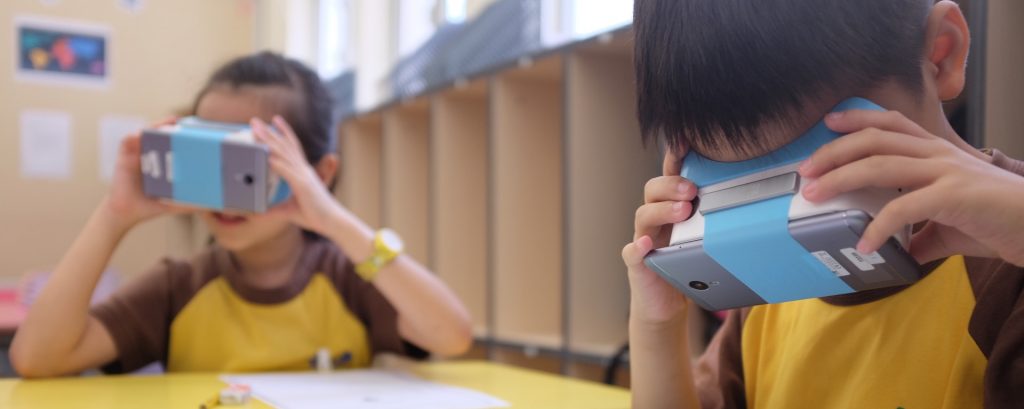
Virtual Reality (VR) and Augmented Reality (AR) are the emerging technologies that everyone talks about in recent years. Apart from the huge waves that these technologies have brought to the recreational industry, researchers are exploring their educational potential.
We believe students benefit a lot from field trips. However, some field trips are costly or even involve dangerous locations that may not be suitable for students to visit. This is the reason why we develop EduVenture-VR®.
EduVenture-VR® (EV-VR) is an extension of the EduVenture® online outdoor learning platform. By leveraging the 360 video capturing technology, EV-VR offers teachers a user-friendly platform to design and compose interactive VR- and AR-based learning materials (namely VITALS: Virtual Immersive Teleporting Active Learning Space) for their students. Then, each student can use his/her own smart phone (iOS or Android) and a costless VR cardboard to access the VITALS that immerses and guides him/her to pursue a virtual field trip.
EduVenture®
An Integrated GPS-supported Mobile Educational System for Outdoor Inquiry Learning
EduVenture® is a learning system with context-awareness that supporting teachers and students to facilitate and conduct outdoor field-trip learning. The system has three components: EduVentureComposer (EV-C), EduVentureExplorer (EV-X), and EduVentureRetriever (EV-R).

With these components, EduVenture® provides a complete solution allowing teachers to design and distribute learning materials, facilitate inquiry-based learning activities, as well as collect students’ work after completing the outdoor field-trip. Supported by the build-in GPS system on mobile devices (such as iPads ™), learning tasks in a certain location will only be triggered when students actually walking through the intended physical area. Although learning spots are prepared by teachers in advance, students can follow their own paths to learn. Such a design is aimed at transforming students into active explorers and stimulating their motivation to learn in the meantime. Overall, EduVenture® addresses various obstacles in current practices of outdoor learning, including challenges in stimulating learning interests, difficulty in catering for diverse learning needs, limitations in the delivery of learning contents and the lack of geographical orientation for students in an outdoor environment.
Learniversity
A social enterprise leveraging technology for equitable, quality education solutions.
Learniversity is a social enterprise founded by Professor Morris Jong with the support of the Sustainable Knowledge Transfer Project Fund (S-KPF) at CUHK. Based on theoretical foundations and empirical research, Learniversity aims to provide innovative, technology-based pedagogical solutions to support the development of quality education and reduce educational inequalities.
Fieldtrip-based experiential learning is a vital avenue for deepening observation skills, promoting learning motivation, and cultivating self-directed learning abilities. However, the frequency of fieldtrips is often limited in conventional school settings due to tight class schedules, and other factors such as weather, timing, and cost. In light of these challenges, Learniversity leverages EduVenture-VR®, an integrated VR learning platform, to create interactive virtual field trips for students to engage in experiential learning anytime and anywhere, while constructing reflective, realistic, and immersive learning environments to enhance their motivation and learning effectiveness. Furthermore, the platform makes field trips economically affordable for underprivileged students and accessible for disabled students, promoting equal educational opportunities.
Website:
The Amgen Biotech Experience (ABE)
An Innovative Science Education Program

The Amgen Biotech Experience (ABE) is an innovative science education program supported by the Amgen Foundation. Through the partnership with the Chinese University of Hong Kong, the Hong Kong ABE site is established in 2016. The program introduces students to the importance of scientific discovery through the hands-on molecular biology learning experience that links core science concepts to real-world applications.
Each year, over 75,000 students and hundreds of science teachers in the US and other countries participate in this program and have the opportunity to explore the methods scientists use to create biotechnology medicines.
As a three-year program in Hong Kong, the loan of research-grade equipment, supplies, curriculum and professional development will be provided to teachers, empowering them to conduct the biotech experiments at their schools. It is estimated over 100 secondary biology teachers, and 2000 secondary students will be involved in the program.
Learn More @ http://abehk.fed.cuhk.edu.hk/
For any enquiries, please contact abehk@cuhk.edu.hk
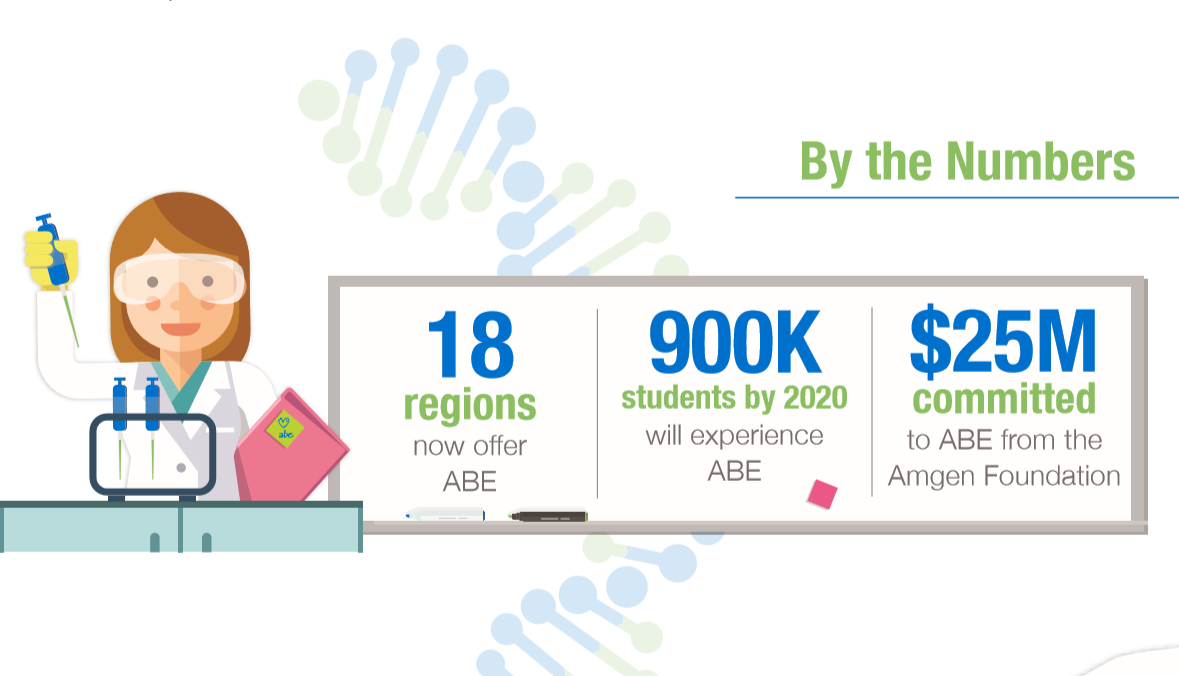
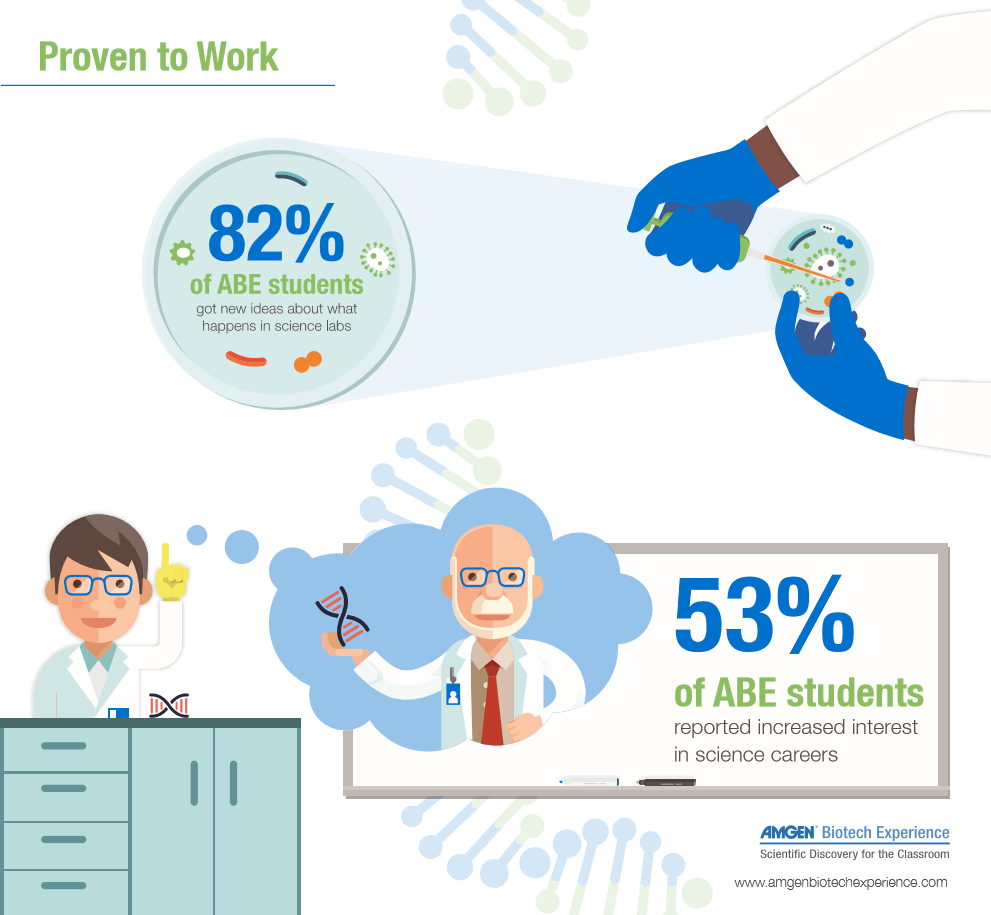
Gifted Education
Cultural Inheritance and Innovative Media Production Programmes
To unleash the potential of gifted students with innovative technologies, we have implemented three off-school advanced learning programmes funded by the Gifted Education Fund, EDB.
Hong Kong in Depth: Innovative Media Production and Cultural Research Programme for Gifted Students (2021-2022)
This programme offered gifted secondary students a unique opportunity to delve into the world of cultural research and innovative media. The programme enhanced their cultural knowledge and fostered their innate creativity by encouraging the creation of cultural tourism online packages using innovative media, such as VR, photography and drones. Additionally, it aimed to cultivate vital self-regulation skills among these students, empowering them to set goals, employ effective strategies, manage their time and emotions adeptly, and evaluate their learning outcomes with precision. Collaborative efforts among students promote peer learning and team building, while simultaneously fostering affective education. Ultimately, the programme fortified students’ self-efficacy, engagement, and growth mindset, laying the foundation for their personal development and meaningful contributions to the community.
Hong Kong in Depth: Creative Tourism and Media Production Programme for Gifted Primary Students (2022-2023)
This programme aimed at enriching the knowledge of gifted primary students by immersing them in the captivating history and traditional culture of Hong Kong, employing an inquiry-based learning approach. The programme empowered them with a wide range of specialised skills, including historical and cultural research, writing and presentation prowess, photography and film editing expertise, and STEAM proficiency, serving as a platform for students to showcase their innovative media talents to promote Hong Kong’s tourism. This learning journey fostered the growth of essential generic skills in the students, encompassing communication, IT proficiency, self-directed learning, creativity, and problem-solving. Simultaneously, this programme prioritised affective education, nurturing positive values and attitudes such as perseverance, integrity, compassion, and a willingness to collaborate with peers.
Hong Kong in Arts: Creative Arts Technology and Cultural Inheritance Programme for Gifted Students (2023-2024)
This programme is dedicated to nurturing the artistic talents and creative potential of gifted secondary students through a self-directed and interdisciplinary arts technology learning journey. The primary objectives are to enrich their understanding of the traditional arts and empower them to unleash their creativity by equipping students with the latest arts technology and enabling them to bring their unique ideas to life through the creation of innovative artwork. In addition, this programme emphasises the development of crucial problem-solving skills, including effective communication, collaboration, self-management, and self-regulation. Students will also gain proficiency in utilising various technical tools, equipment, materials, and media for the production of artwork. Furthermore, this programme places a strong emphasis on fostering positive values and attitudes among students. It aims to strengthen their affective development, facilitate personal growth, and instil a sense of solicitude for both their community and country.
EduVenture® Cultural Learning
Hong Kong as an Outdoor Museum: EduVenture® supports Non-Chinese Speaking Students in Learning Chinese Culture
Supported by The Social Innovation and Entrepreneurship Development Fund (SIE Fund), the project aimed to enhance the understanding of Hong Kong’s culture and history among non-Chinese speaking students (NCS) through an innovative, interactive, inquiry-based outdoor learning system — EduVenture®. It is a GPS-supported mobile learning system designed to enrich students’ outdoor learning experiences by providing interactive, inquiry-based tasks that scaffold their learning in a complex and authentic environment.
With EduVenture®, NCS students could step into an outdoor museum to immerse themselves in the cultural sensations of the city. They walked along pre-designed outdoor learning trails where various exploratory hotspots were marked for inquiry-based learning. These hotspots encompassed activities such as collecting primary historical evidence, analyzing data, and developing evaluative judgments. This project benefited 250 NCS students and 50 teachers, who provided positive feedback on their experiences.
From Coding to STEM
A Sustainable Curriculum for STEM Education
From Coding to STEM aims at implementing a sustainable curriculum in primary schools to help students develop computational thinking skills. Funded by the Quality Education Fund (QEF), the project involves 23 primary schools. Beneficiary includes more than 15,000 primary students, teachers and the general public throughout the project period in the 2017-18 academic year.
This project facilitates learning and teaching of computational thinking in a holistic approach, such as designing teaching materials in the programming platforms (Scratch and AI2), providing technical support in computer lessons and conducting teacher training workshops. Train-the-Trainer (3T) is one of the primary goals. Teachers attend workshops organised by CLST to familiarise themselves with the coding platforms and the corresponding pedagogies. Alongside with the project implementation, CLST also conducts regular Collaborative Lesson Planning (CLP) to provoke active engagements in professional dialogues and STEM teaching material development. These CLPs involve teachers from all participating schools and are organised on a weekly basis.
We believe computational thinking skills span across Science, Technology, Engineering and Mathematics (STEM) and bridge the gaps among these disciplines. Therefore, we organized STEM Carnival and From Coding to STEM Competition. These two events unleash students’ creativity to apply computational thinking skills in designing STEM projects and empower them to put the knowledge and skills acquired into practice. In the long run, we hope that students could explore their enthusiasm and talents in STEM-related areas. Ultimately, strive for technological innovation in the future.
Chinese Lexicon Project
A database of normed lexical decision performance of two-character Chinese words

Funded by the Research Grant Council of Hong Kong, this project aims at examining how word-level and character-level lexical variables influence skilled readers’ recognition of two-character Chinese compound words. Understanding basic word recognition processes is a critical perquisite for an in-depth investigation of higher-order lexical activities, e.g., reading. Following the procedures adopted in Balota et al.’s (2007) English Lexicon Project, we obtain norms for participants’ lexical decision performance using a large amount of two-character words (in traditional Chinese characters) varying on various lexical variables, e.g., word frequency. In the lexical decision task, one of the gold standards for testing lexical processing models, participants decide whether two characters form a Chinese word, e.g., 朋友 (friend), or a non-word, e.g., 形忌. Words’ mean reaction times and accuracies are analyzed via item-level regression models. The Chinese Lexicon Project will further our knowledge of Chinese word recognition processes and provide the research community with a spreadsheet of lexical variables and normed lexical-decision performance that will make a significant contribution to psycholinguistic research.
Living in History and Culture in Hong Kong and Beijing
How public events, life transitions, and cultural life scripts affect the organization and contents of autobiographical memory
The aim of the project is to investigate how public, cultural, and generational factors influence Chinese people’s organization and contents of autobiographical memories; that is, an individual’s memory about his/her personal life. We examine the mnemonic impact of public events on individuals in order to understand when and why significant historical/public events and autobiographical memory can be intertwined. The Living-in-History effect occurs when people estimate the dates of the autobiographical events by recalling historical facts associated with those events and using them to support their date estimation. We aim to examine whether the Living-in-History effect will be presented in two groups of older adults who are local residents in Beijing and Hong Kong, respectively. In addition, we investigate “Chinese cultural life script” in Hong Kong and mainland China. Cultural life script is a set of positive, expected, and culturally important transitional events, each of which is assumed to take place within a certain age range. By comparing the findings obtained in Beijing and in Hong Kong, we can also gain insights for the roles that Chinese culture and Hong Kong sub-culture play in the organization and contents of people’s autobiographical memories. From the perspective of intergenerational education, we are interested in the intergenerational transmissions of public/historical events, family transitions, and cultural life scripts between parents and children and explore a possible method to probe the potential changes of cultural life script between generations.
Flipped Classroom
Flipped Teaching for Excellence in Methodology Training for Teachers of English
This project, which is supported by the Micro-Module Courseware Development Grant (CUHK), aims to produce 8 micro modules that can be used in courses for training preservice and inservice teachers of English. Each module corresponds with one major topic in English language teaching methodology. The micro modules were designed in such a way that on top of the target student groups, parts of each module can also be used in other related courses. For each micro module, a pre-class video was produced. The pre-class video aims to prepare students for the upcoming class session. It provides them with the requisite subject matter knowledge, so that students come to class prepared. A post-viewing quiz was created for each micro module, which students would complete on Blackboard, the university’s learning management system. For each module, a set of in-class activities were designed. These in-classroom activities relate to the content of the pre-class video. Occasionally, the instructor may still have additional subject matter to convey in class, but most of the time, the students can quickly embark on the in-class activities. The in-class activities were designed with two features in mind: (a) they would stimulate deeper, or higher-order thinking; and/or (b) they enable to apply the subject matter learnt from the pre-class video in designing their own teaching.

LearningVillages®
An Online Game-based CSCL Platform
LearningVillages® (LV) operates in the form of MMORPG (Massively Multi-player Online Role-Play Game) in which each village represents an issue of enquiry. In this virtual world, every student has his/her own avatar to participate collaboratively in inter-school “two-tier” enquiry learning. He/she can create a village, taking the role of chieftain, for initiating an issue-enquiry discussion. In this village, with respect to the issue, any students (villagers) in the LV community can build different types of houses to contribute discussion resources, raise questions, propose hypotheses, delineate arguments, and provide evidence pieces. Further, they can construct different types of roads to interconnect the houses to visualize their in-between relationships in a form of mind-map. This is the first-tier “village-level” discussion. In addition, every house in the village is enterable, functioning as an individual forum to facilitate deeper enquiry into the content discussed inside that particular house. This is the second-tier “house-level” discussion. When the number of quality houses reaches a certain amount, the village will be upgraded by their learning facilitators (usually their teachers). Benefits brought to the students by the upgrade include higher social status conferment for enjoying extra privileges in the virtual world, such as pet keeping, mini-game playing, etc.
Massive Open Online Course
Teacher Professional Development through MOOC
We have developed the very first in-service teacher professional development massive open online course (MOOC) funded by Education Bureau (EDB), aiding primary and secondary school teachers to implement WebQuest. WebQuest is a learner-centric project-based learning approach for facilitating K-12 students to pursue collaborative inquiry learning on the Internet. This MOOC is composed of video-based lecture modules, formative assessment quizzes (each articulated to the end of a module), virtual forums for teacher community building (each facilitated by an online tutor), and summative assessment tasks. In the course, participants can select their own learning track by taking different lecture modules in accordance with their own grade of teaching (primary or secondary) and their own subject of teaching (four key learning areas: English Language, Chinese Language, Mathematics, or Humanities). After passing all formative assessment quizzes and completing all community-building and summative assessment tasks, participants will be each awarded an eCertificate, and six hours of continuing professional development (CPD) by EDB. In addition, inter-school subject-specific teacher communities are built for users to share good teaching practices. Besides EDB, the collaborators of this project include Hong Kong Education City as well as Pukunui (HK). 
Farmtasia®
Work Hard, Play Tough
Farmtasia® is a a virtual game environment that help to develop students’ inquiry skills. It is a Massively Multiplayer Online Role Play Game (MMORPG) with three components, cultivation, horticulture and pasturage. Each student acts as a farm manager who has to run a farmland individually. In order to win the game, students have to formulate various investment and operational strategies to output both high quality and quantity farm products to the market in order to make profit and to earn high reputation. Since the whole simulation environment in Farmtasia 2 was created on the basis of real data, by making decisions in managing their own farms, students actually are gaining knowledge and skills to deal with similar situations in the real world. Besides helping students to gain subject knowledge, the system can be used to train students’ inquiry skills.
Synthetic Phonics Learning Platform
This website introduces synthetic phonics to preservice and inservice ESL teachers. The synthetic approach, which is increasingly adopted by school systems around the world, teaches sound-spelling correspondences directly and explicitly to young children.
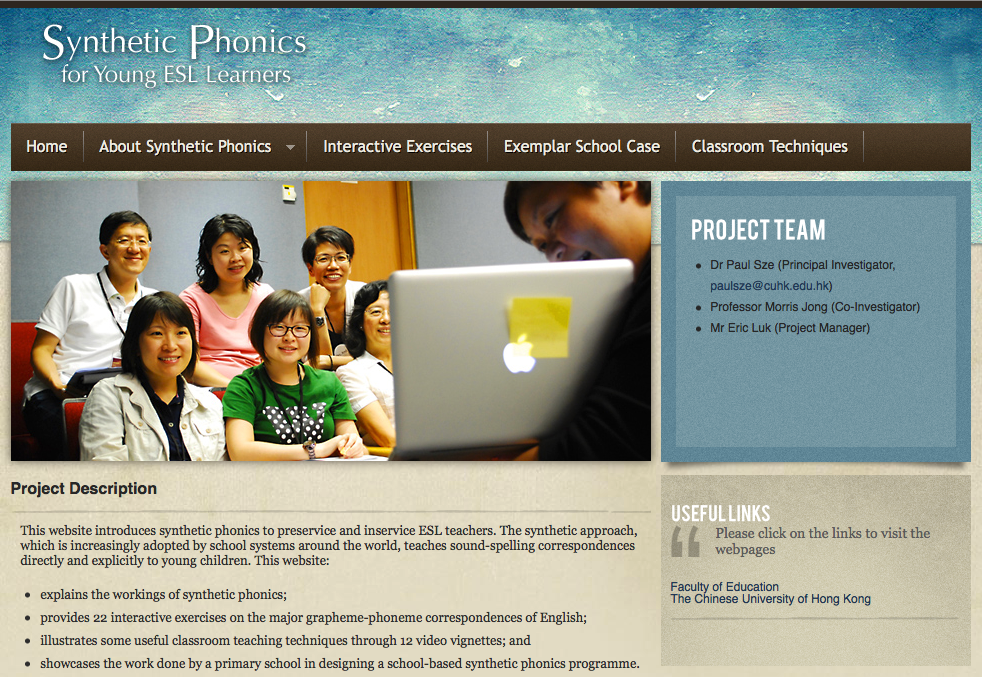
CQuestGarden
Based on QuestGarden, CQuestGarden is designed as a platform combining online authoring tool, resource bank, hosting service and community of professional sharing that make the creation of quality WebQuest more efficiently. Skills of Webpage editing and uploading are no longer prerequisites for designing and hosting WebQuests. Above all, CQuestGarden provides guidelines for instructional design for every module of WebQuests. “c” of cQuestGarden stands for “Chinese”, denoting its aim of facilitating WebQuest implementation in the Chinese communities. Besides helping students to gain subject knowledge, the system can be used to train students’ inquiry skills. In the year 2010, we have designed a set of activities for the secondary school students, and the project is still going on.
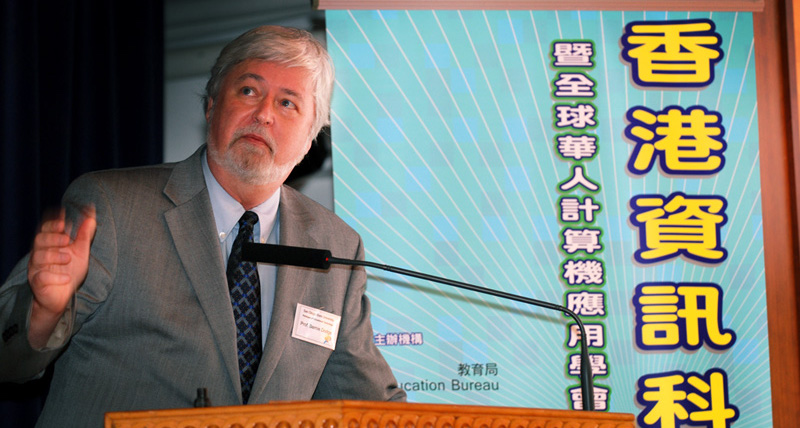
EagleEye
A Mobile App for Outdoor Exploratory Learning
EagleEye is a software system integrating the use of GPS receivers and mobile learning devices (e.g. iPad) to facilitate exploratory outdoor learning activities.
